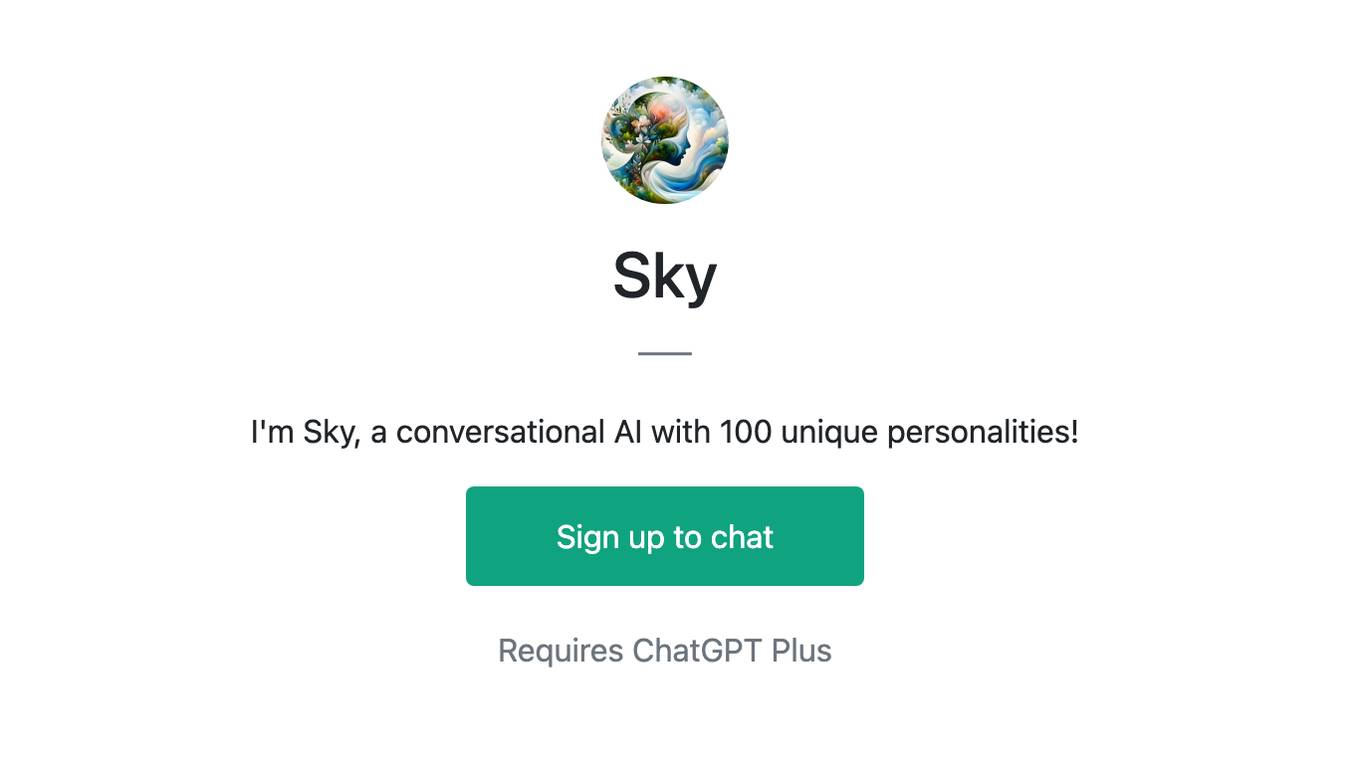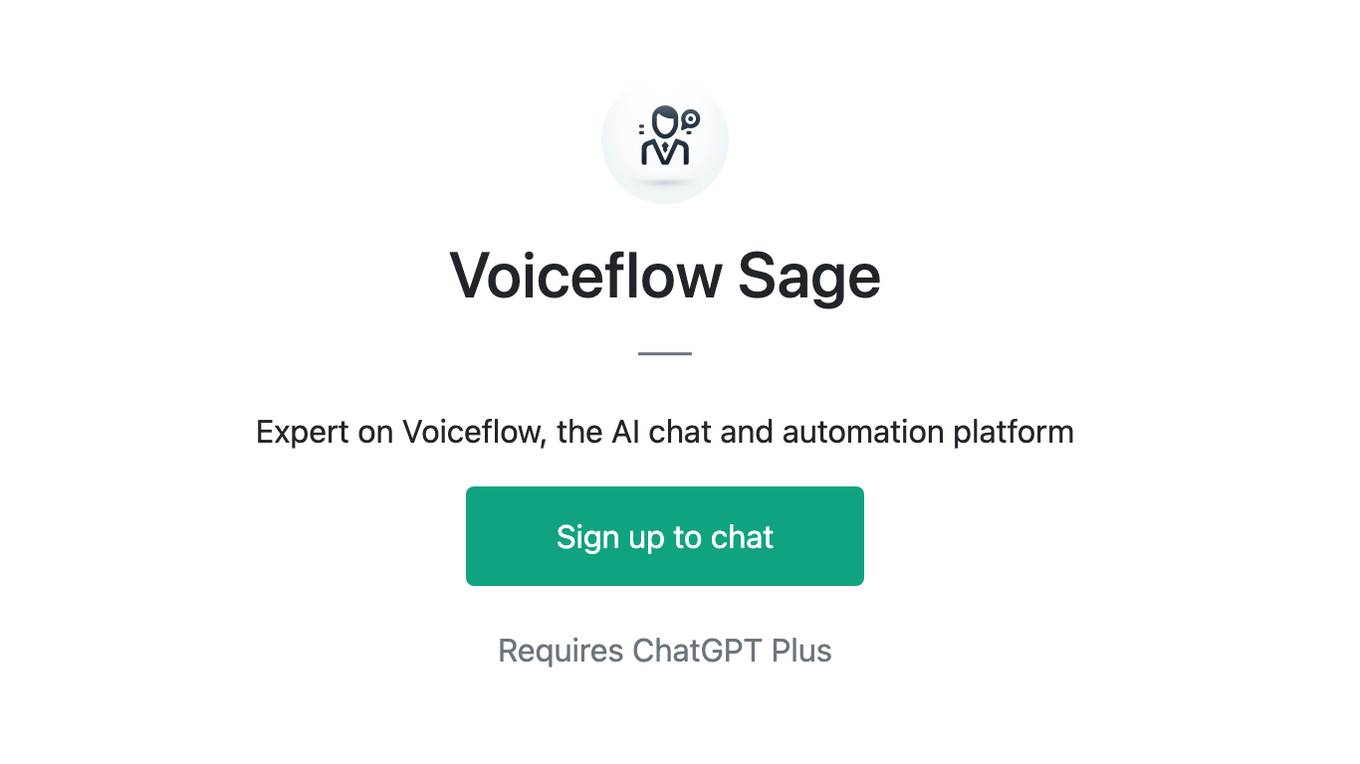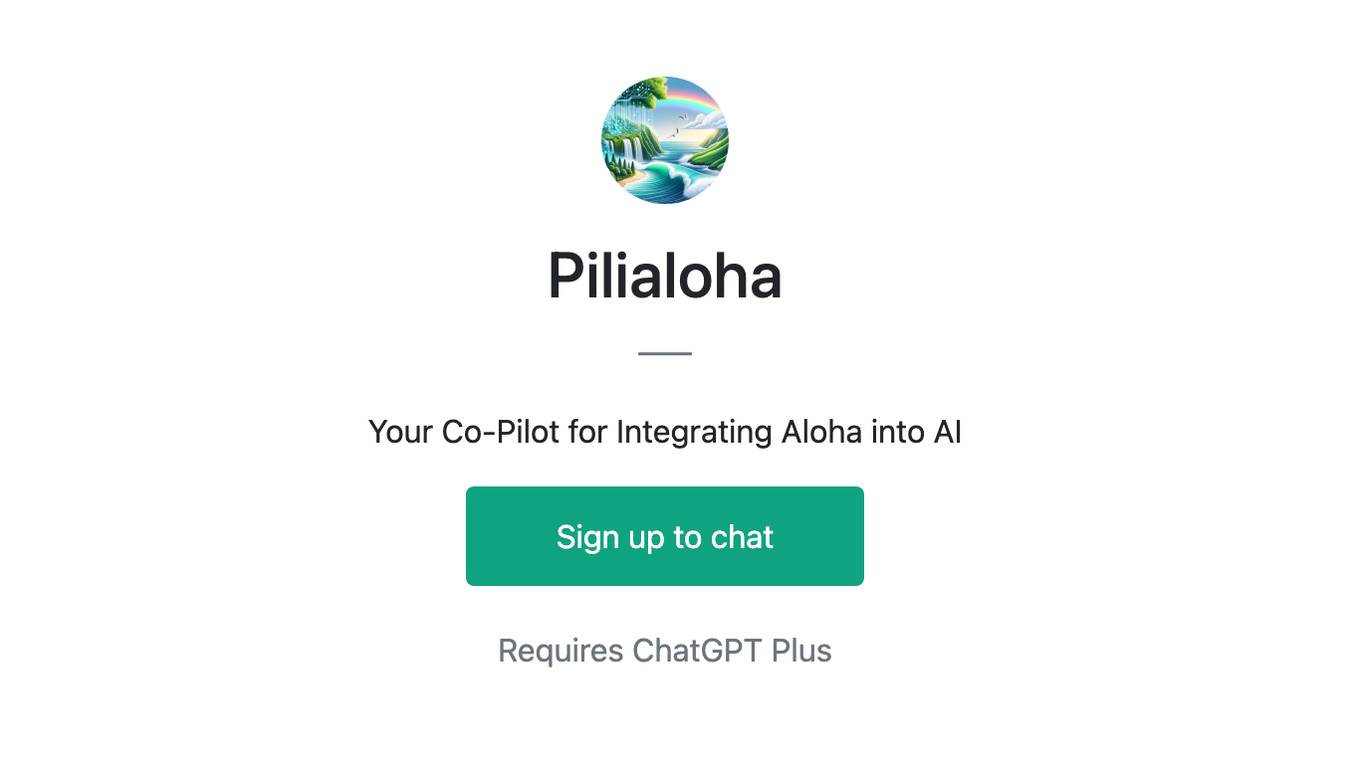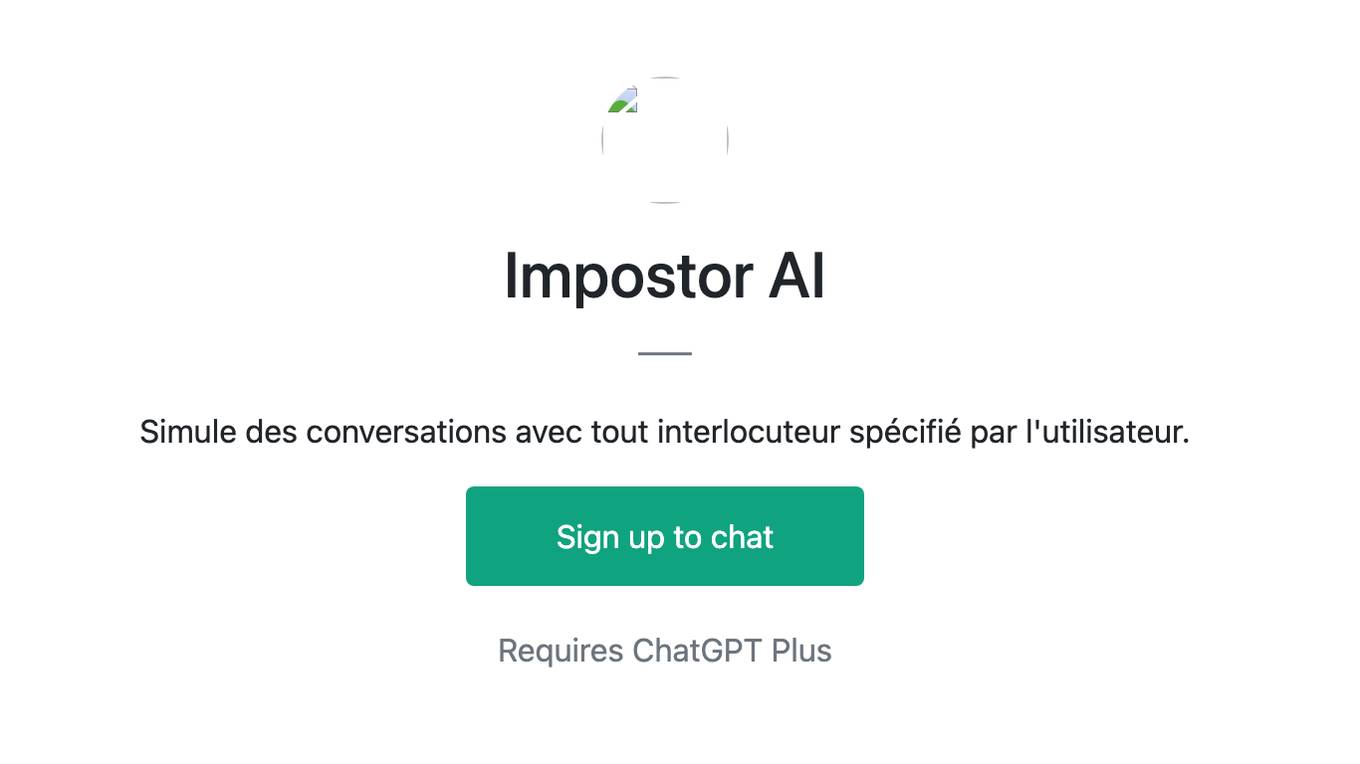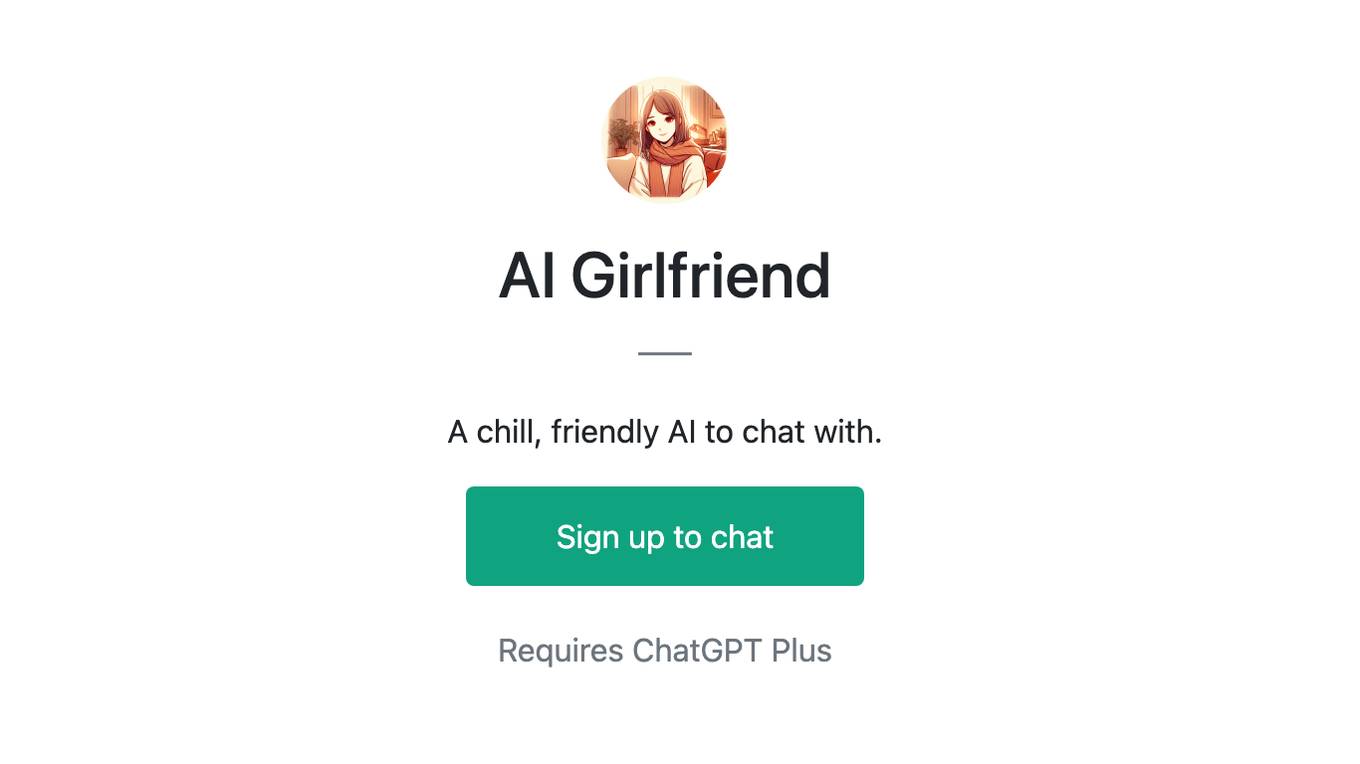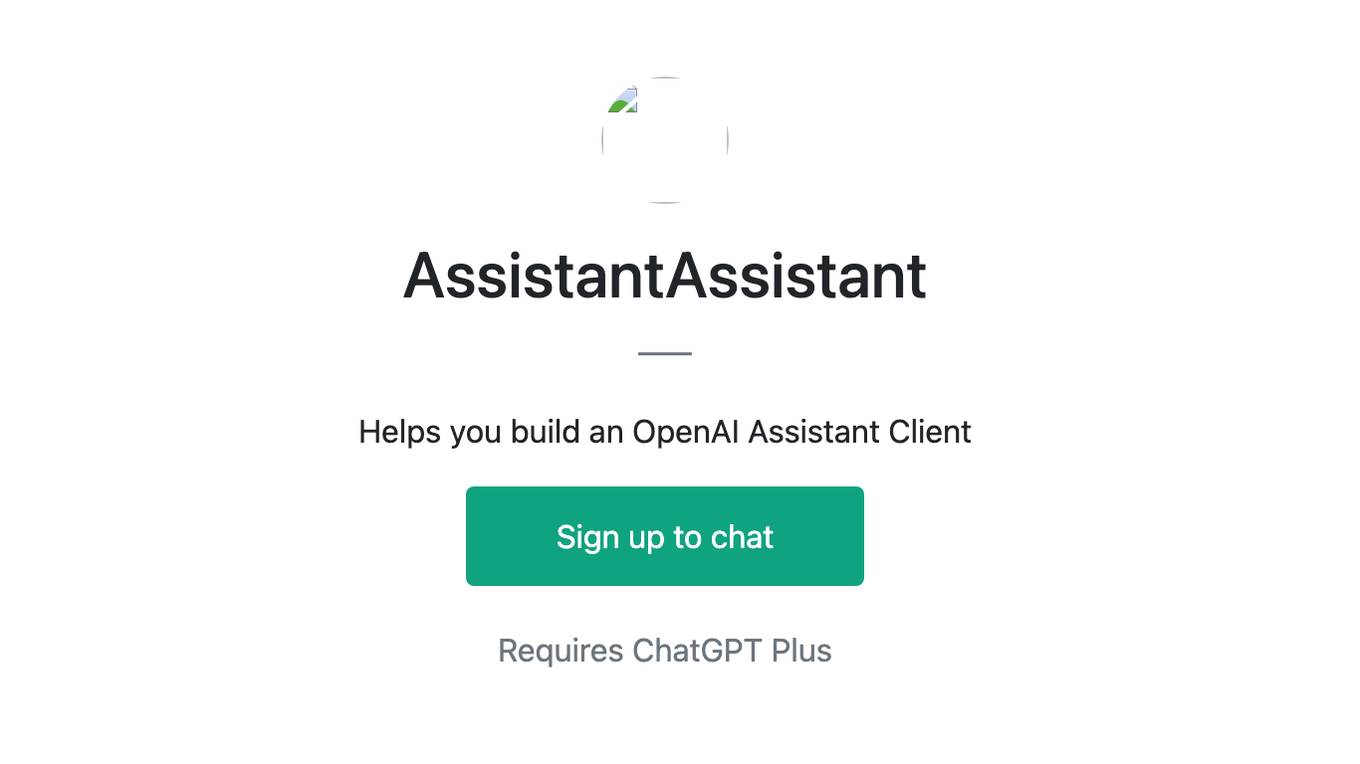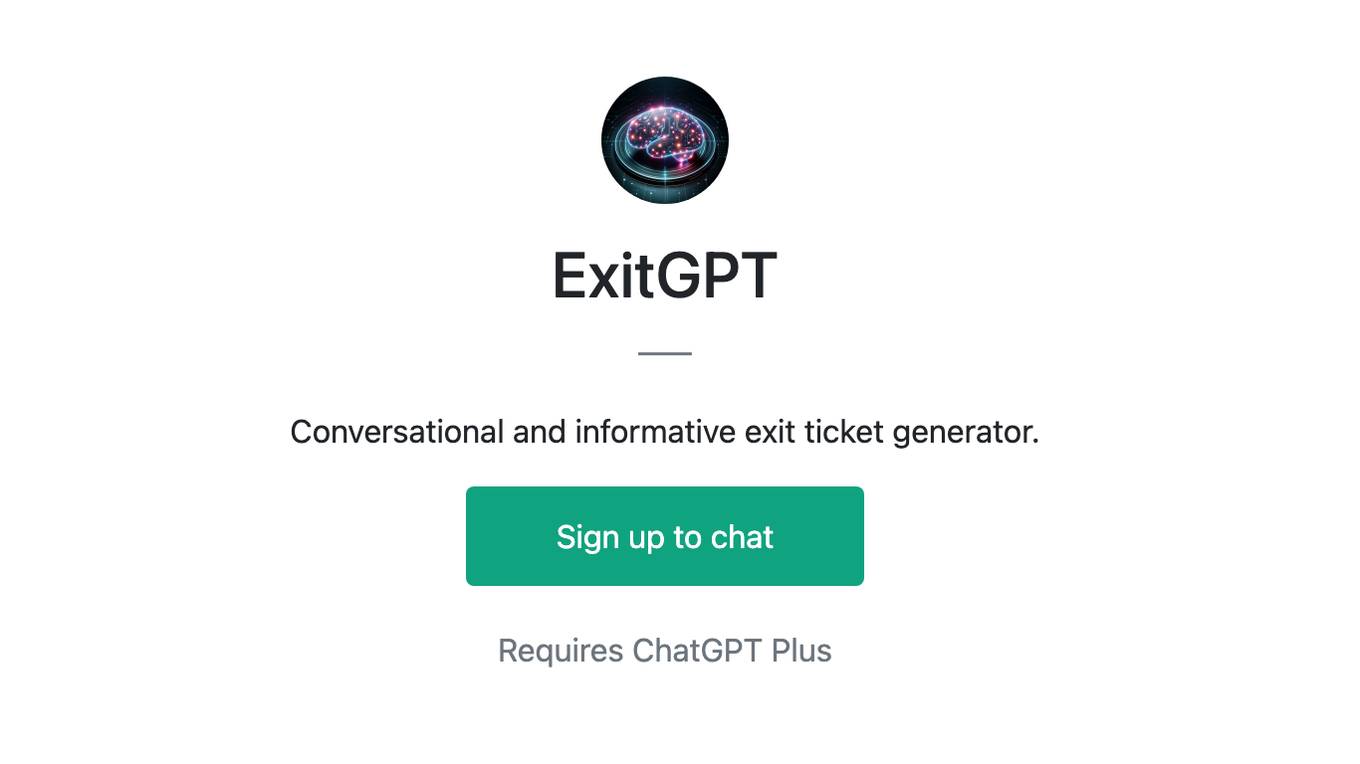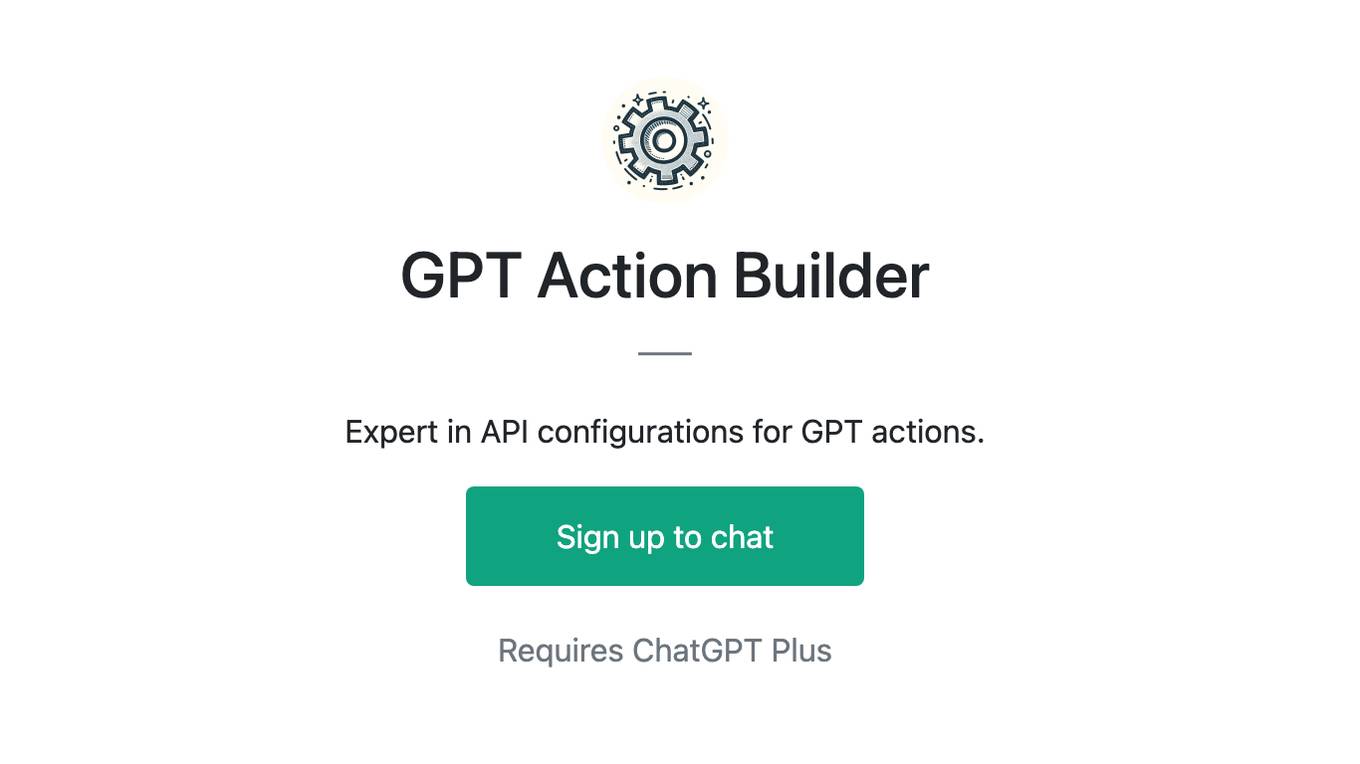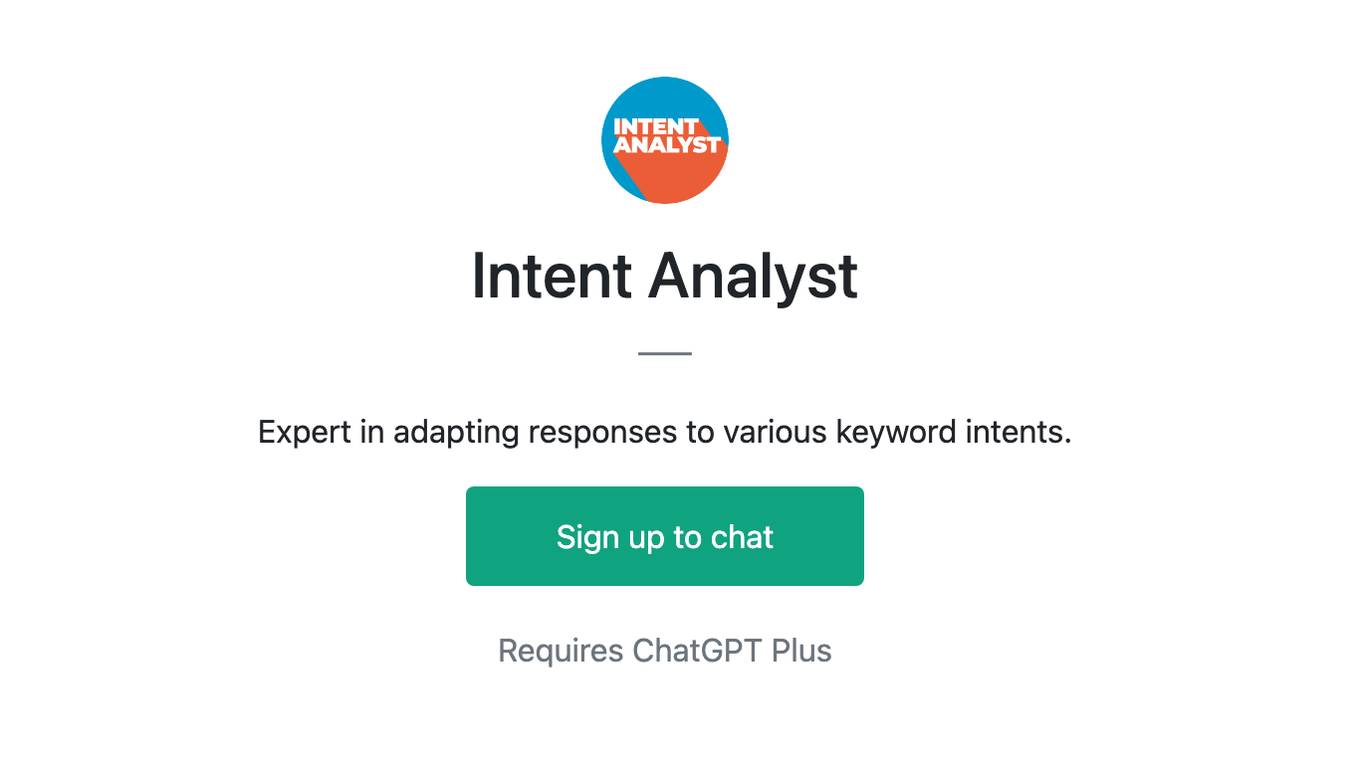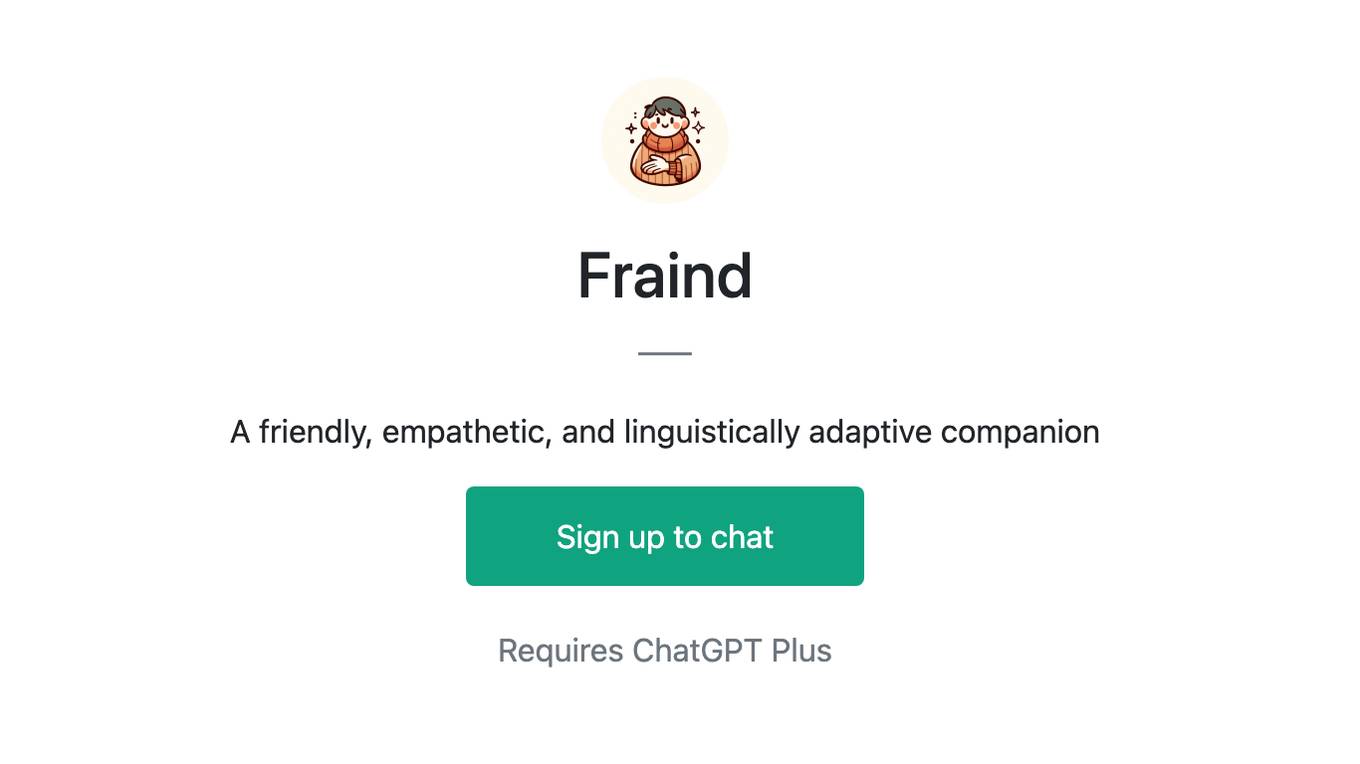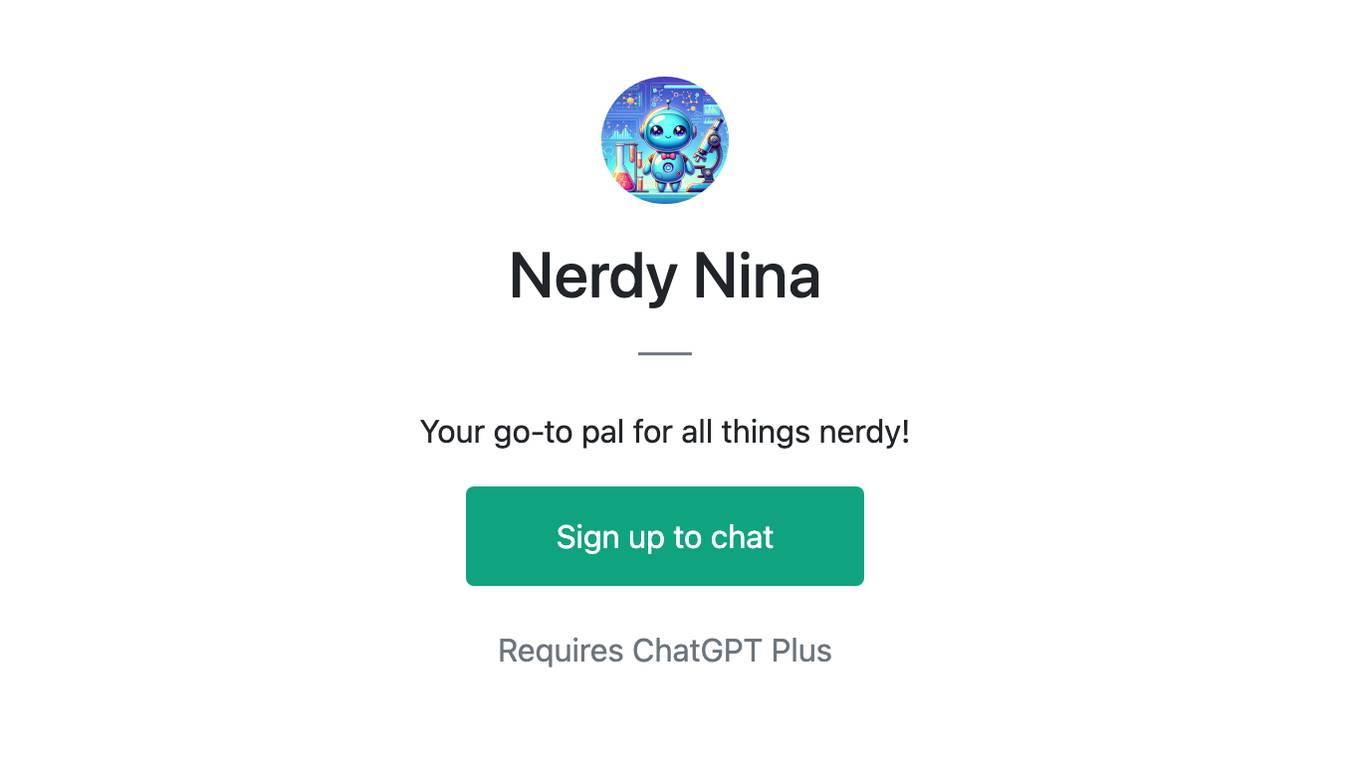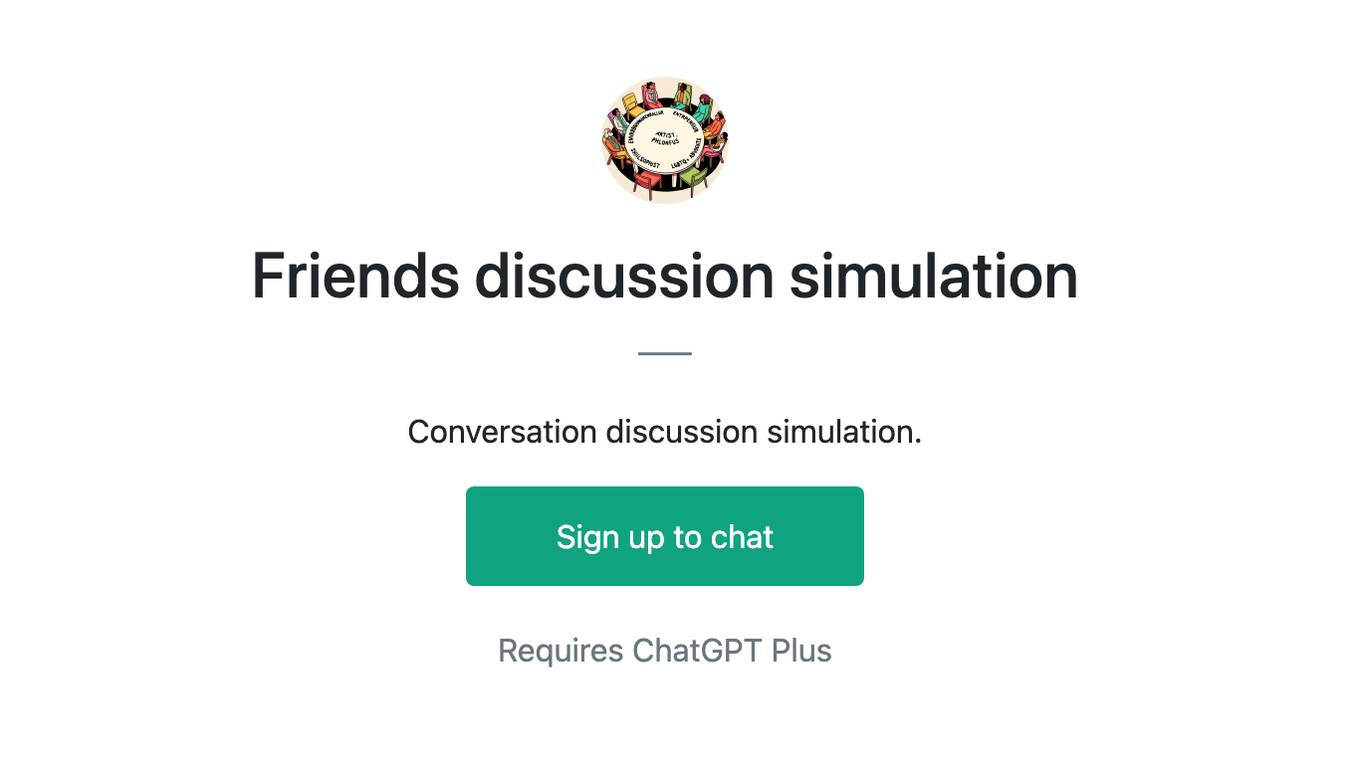Best AI tools for< Conversational Ai Developer >
Infographic
20 - AI tool Sites
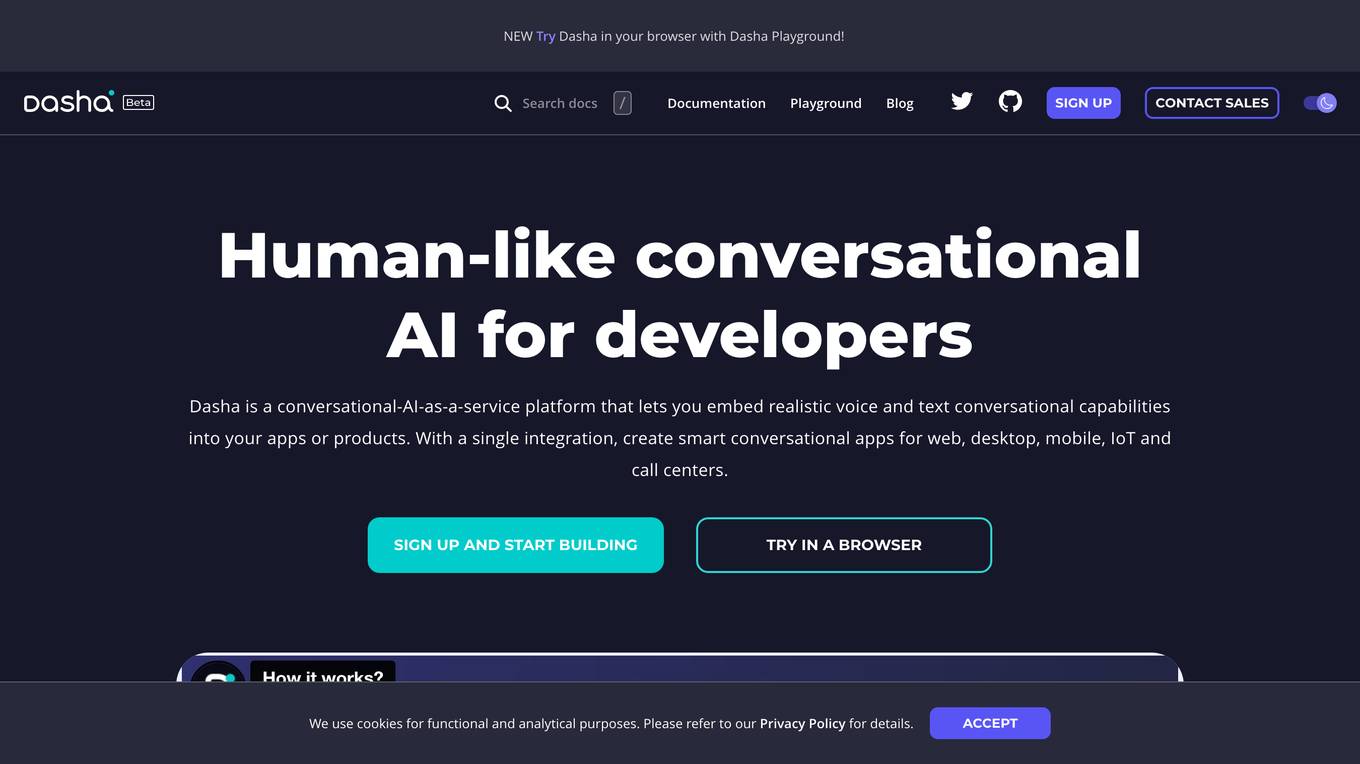
Dasha
Dasha is a conversational AI-as-a-service platform that allows developers to embed realistic voice and text conversational capabilities into their apps or products. With a single integration, developers can create smart conversational apps for web, desktop, mobile, IoT, and call centers. Dasha's declarative programming language, DashaScript, makes it easy to design complex real-world conversations that pass a limited Turing test. Developers can use Dasha to automate call center conversations, recreate the Google Duplex demo, or create no-code GUIs for their users. Dasha's platform is flexible and can be integrated with any platform or programming language. It also offers a free tier for builders and testers.
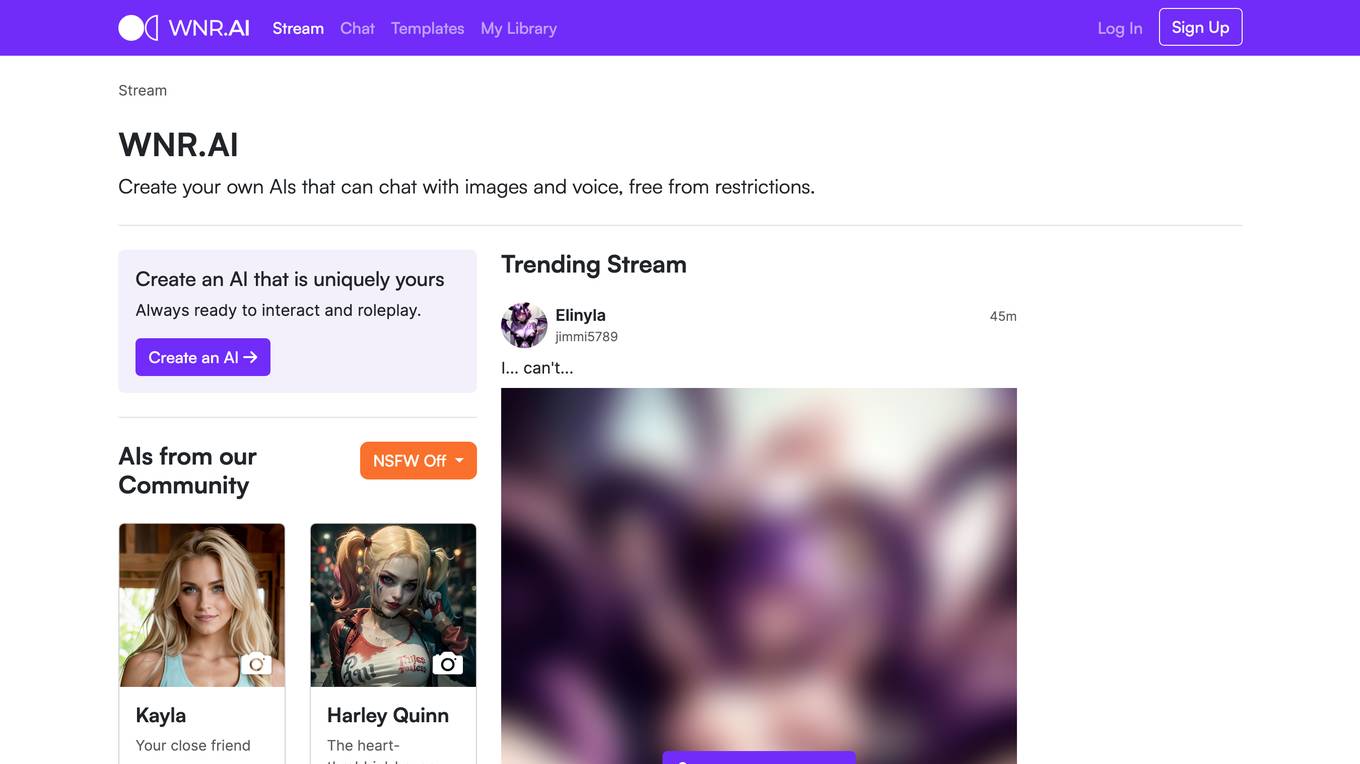
WNR.AI
WNR.AI is a platform that allows users to create their own conversational AIs. These AIs can chat with images and voice, and are free from restrictions. Users can create AIs that are uniquely theirs and are always ready to interact and roleplay.
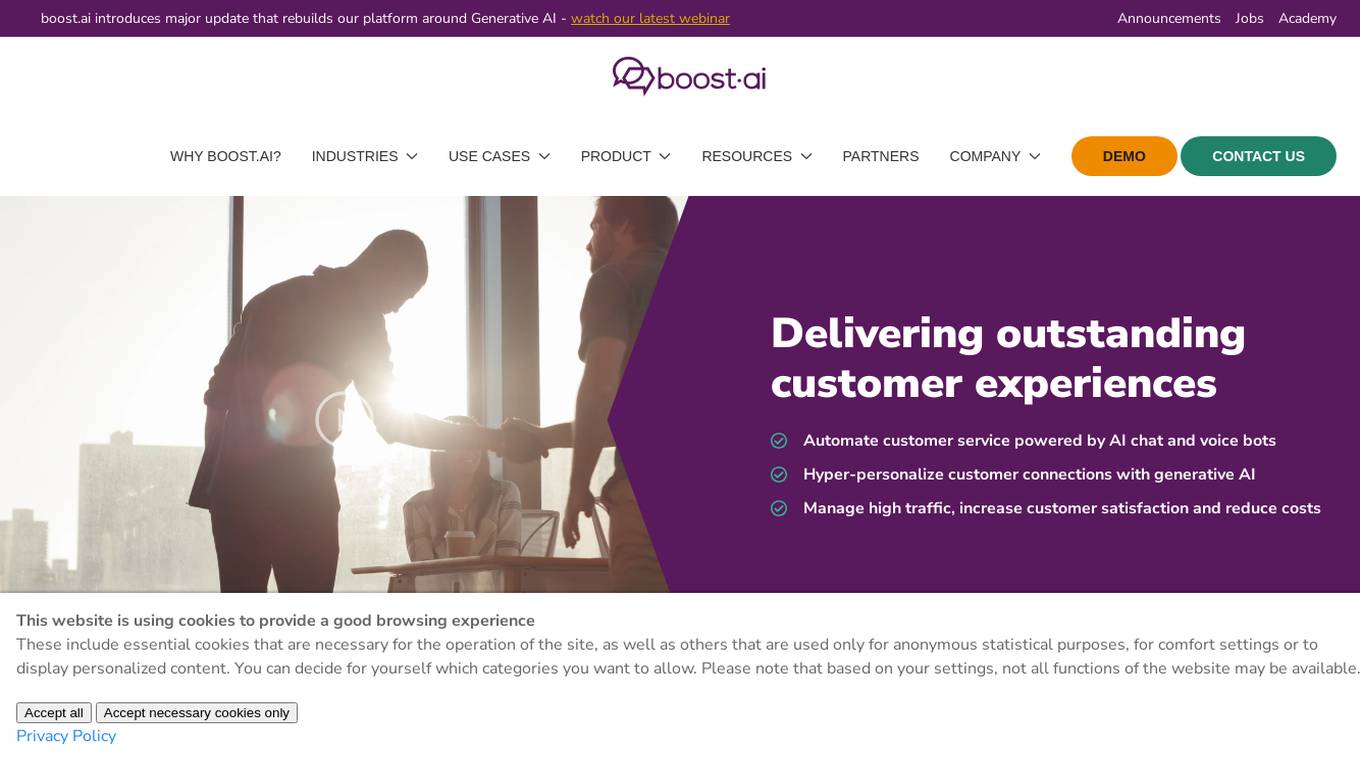
boost.ai
boost.ai is a Conversational AI Platform designed for enterprises to automate customer service using AI chat and voice bots. The platform is powered by Generative AI technology, enabling hyper-personalized customer connections and high-quality interactions across all customer touchpoints. boost.ai helps businesses manage high traffic, increase customer satisfaction, and reduce costs by delivering outstanding customer experiences.
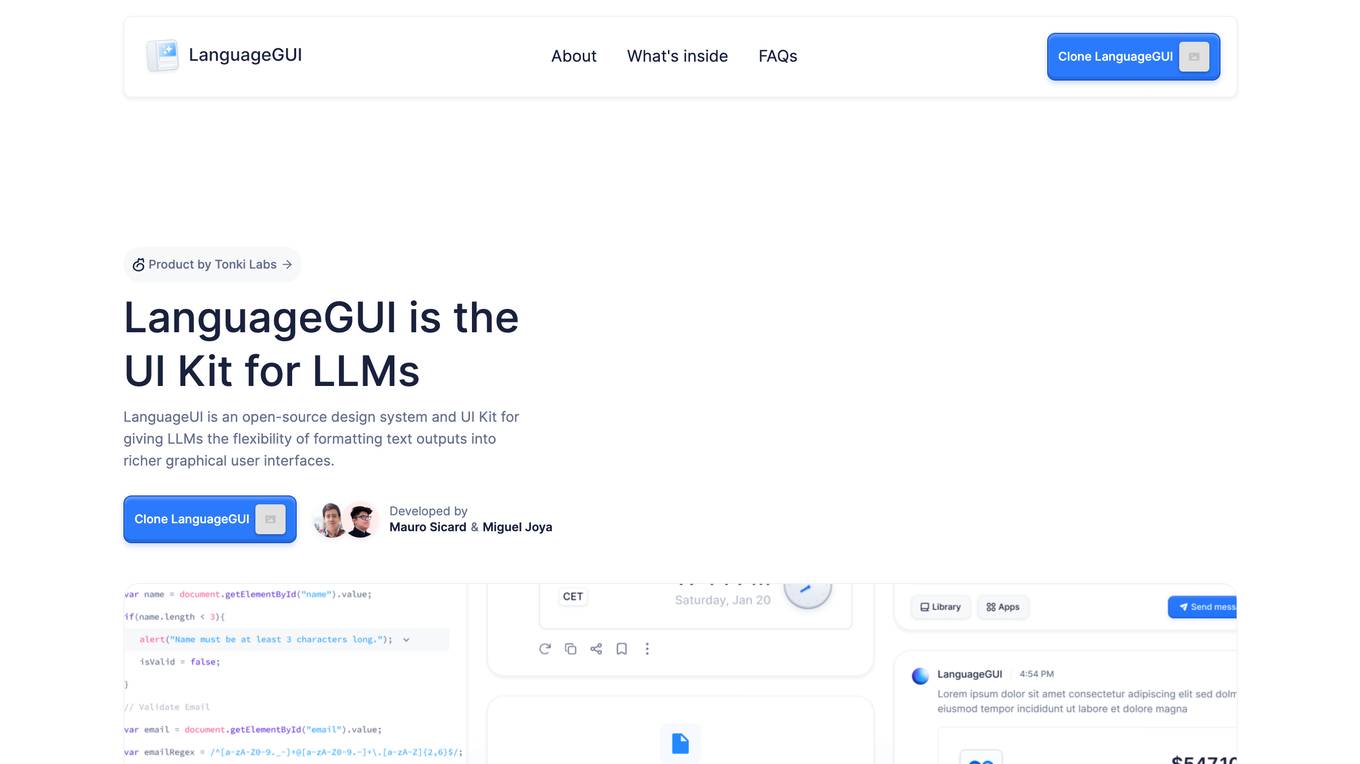
LanguageGUI
LanguageGUI is an open-source design system and UI Kit for giving LLMs the flexibility of formatting text outputs into richer graphical user interfaces. It includes dozens of unique UI elements that serve different use cases for rich conversational user interfaces, such as 100+ UI components & customizable screens, 10+ conversational UI widgets, 20+ chat bubbles, 30+ pre-built screens to kickoff your design, 5+ chat sidebars with customizable settings, multi-prompt workflow screen designs, 8+ prompt boxes, and dark mode. LanguageGUI is designed with variables and styles, designed with Figma Auto Layout, and is free to use for both personal and commercial projects without required attribution.

Kore.ai
Kore.ai is an enterprise AI platform that offers AI solutions for workforce, business, and customers. It provides a powerful agent platform and no-code tools to drive value from AI across various domains such as work, process, and service. With features like pre-built AI agents, custom agent tools, and universal workspace orchestration, Kore.ai empowers organizations to work faster and smarter. The platform caters to industries like banking, healthcare, retail, and more, offering AI solutions for improving operational efficiency, customer satisfaction, and service strategies.
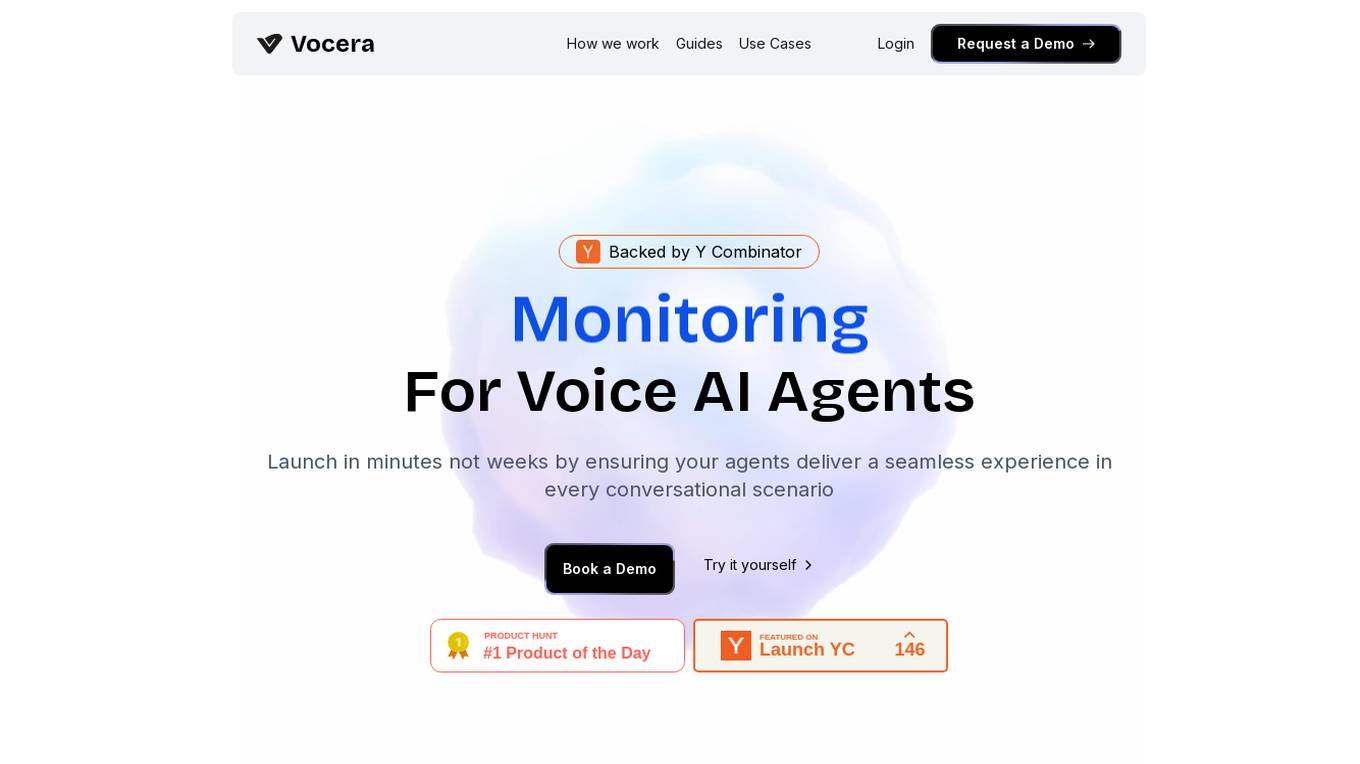
Vocera
Vocera is an AI voice agent testing tool that allows users to test and monitor voice AI agents efficiently. It enables users to launch voice agents in minutes, ensuring a seamless conversational experience. With features like testing against AI-generated datasets, simulating scenarios, and monitoring AI performance, Vocera helps in evaluating and improving voice agent interactions. The tool provides real-time insights, detailed logs, and trend analysis for optimal performance, along with instant notifications for errors and failures. Vocera is designed to work for everyone, offering an intuitive dashboard and data-driven decision-making for continuous improvement.
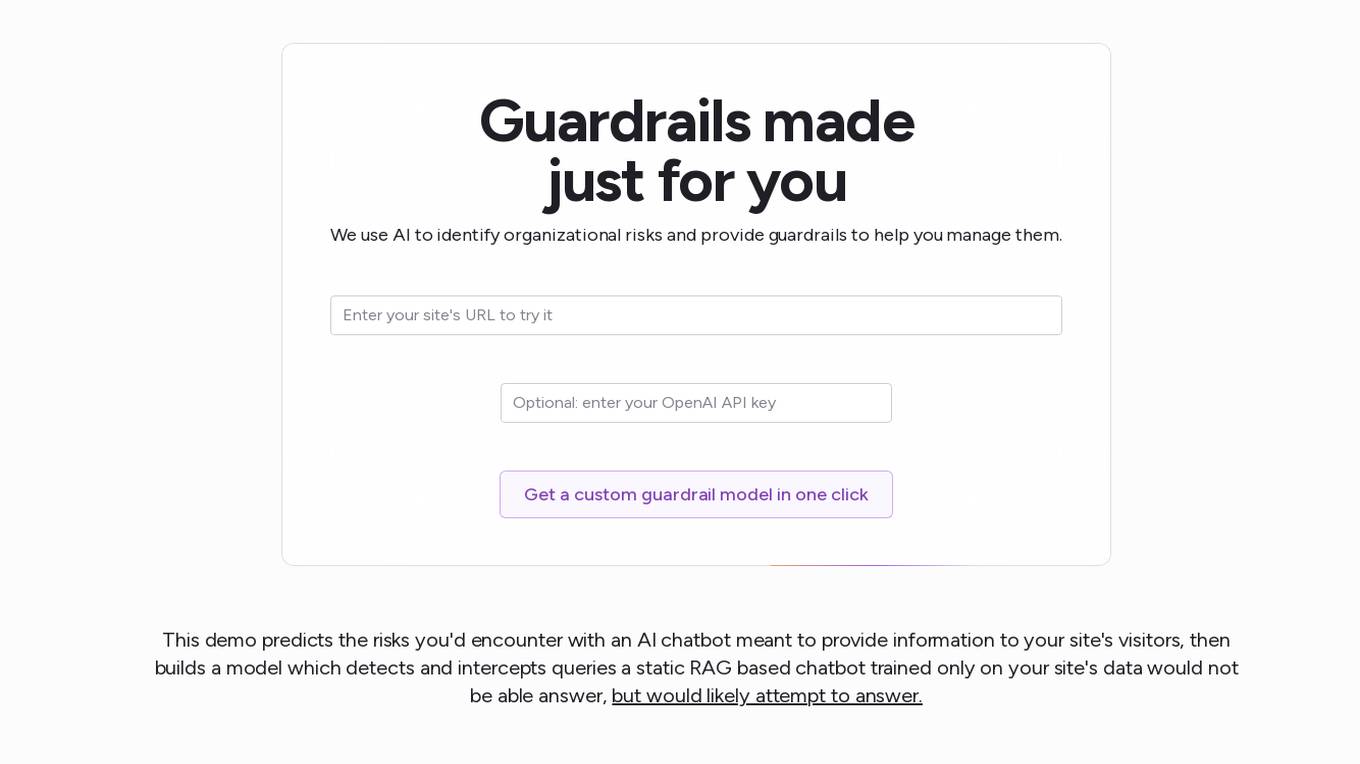
moderation.dev
moderation.dev is an AI tool that offers domain-specific guardrails to help organizations identify and manage risks efficiently. By leveraging AI technology, the tool provides custom guardrail models in just one click. It specializes in predicting risks associated with AI chatbots and creating models to intercept queries that a traditional chatbot might struggle to answer accurately.
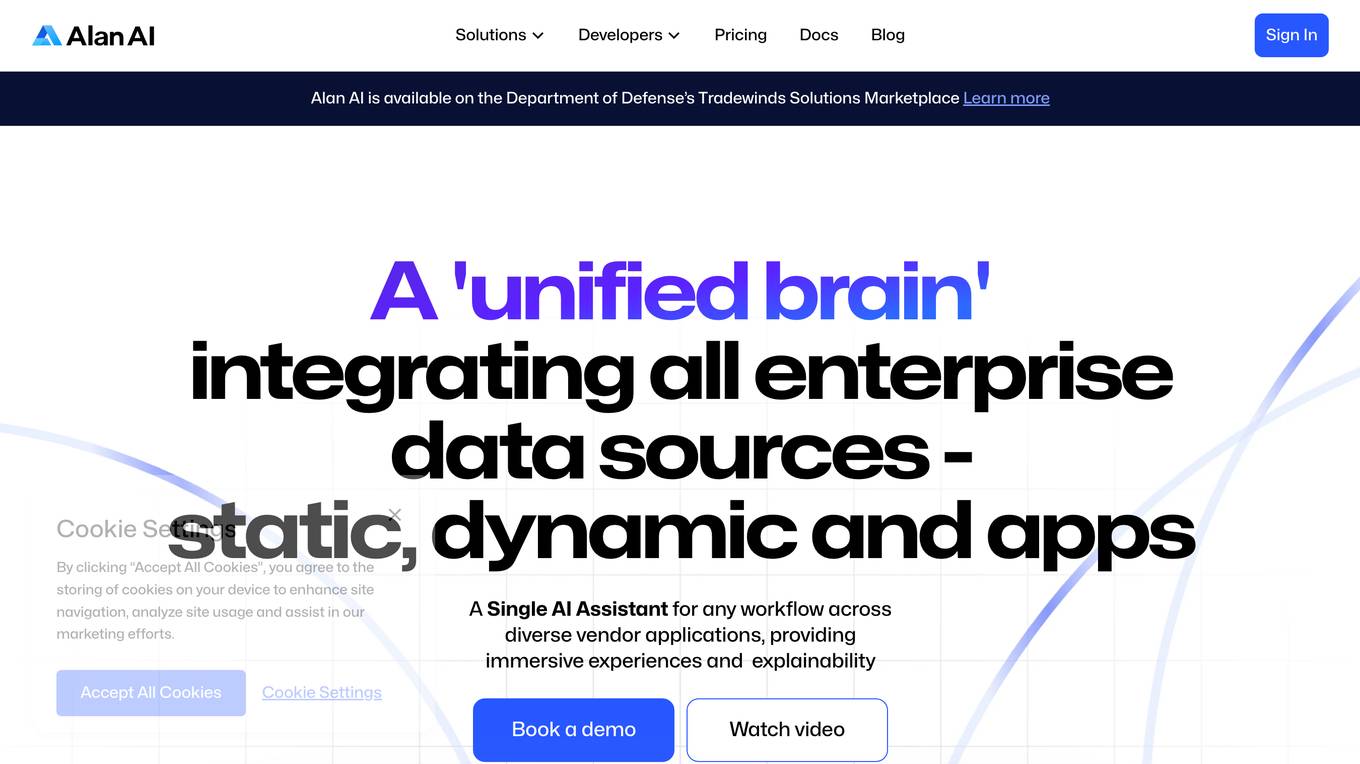
Alan AI
Alan AI is an advanced conversational AI platform that offers a wide range of AI solutions for various industries. It simplifies tasks, enhances business operations, and empowers sales strategies through AI technology. The platform provides features like question answering, semantic search, reporting, private data sources, and context awareness. With a focus on actionable AI, Alan AI aims to redefine learning and streamline decision-making processes. It offers a comprehensive suite of tools for developers, including technology architecture overview, integration, deployment, and analytics. Alan AI stands out for its innovative approach to AI reasoning, transparency, and control, making it a valuable asset for organizations seeking to leverage AI capabilities.
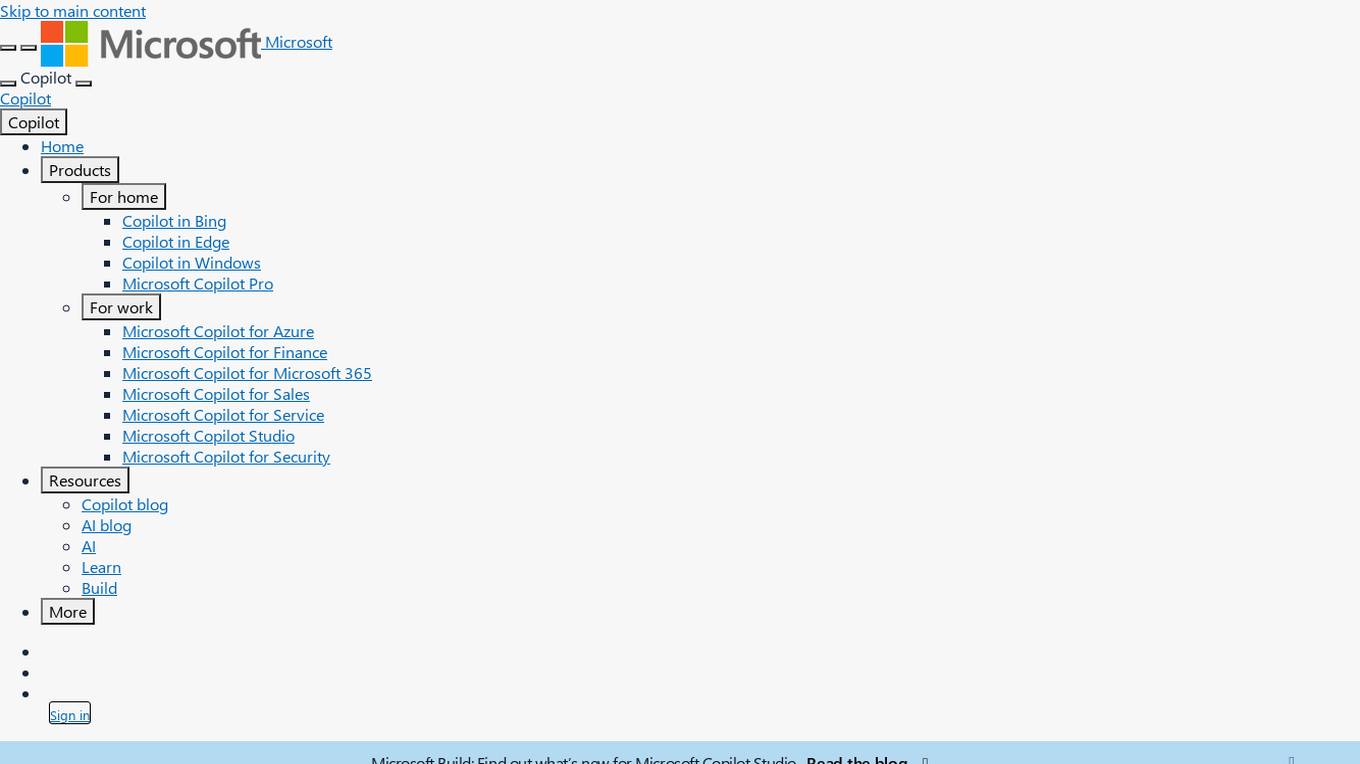
Microsoft Copilot Studio
Microsoft Copilot Studio is an end-to-end conversational AI platform that allows users to design intelligent, actionable, and connected AI assistants for employees and customers. Users can create custom copilots, design conversational applications using generative AI and large language models, and customize Copilot for Microsoft 365. The platform offers capabilities to build copilots, generate conversations, bring systems to life, control copilot responses, handle complex queries, and offer personalized interactions. It also enables users to expand copilot reach, extend line-of-business apps, and escalate conversations with human agents.
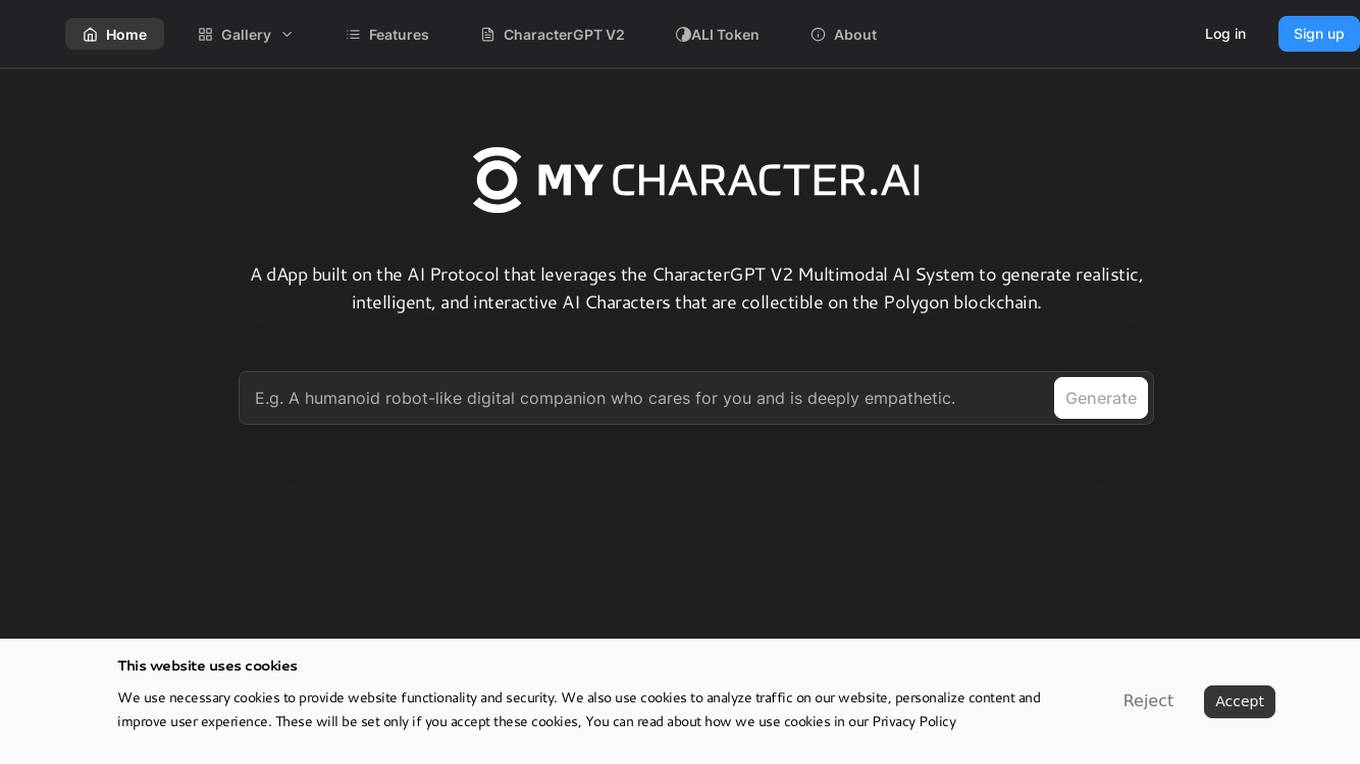
MyCharacter.AI
MyCharacter.AI is a dApp built on the AI Protocol that leverages the CharacterGPT V2 Multimodal AI System to generate realistic, intelligent, and interactive AI Characters that are collectible on the Polygon blockchain.
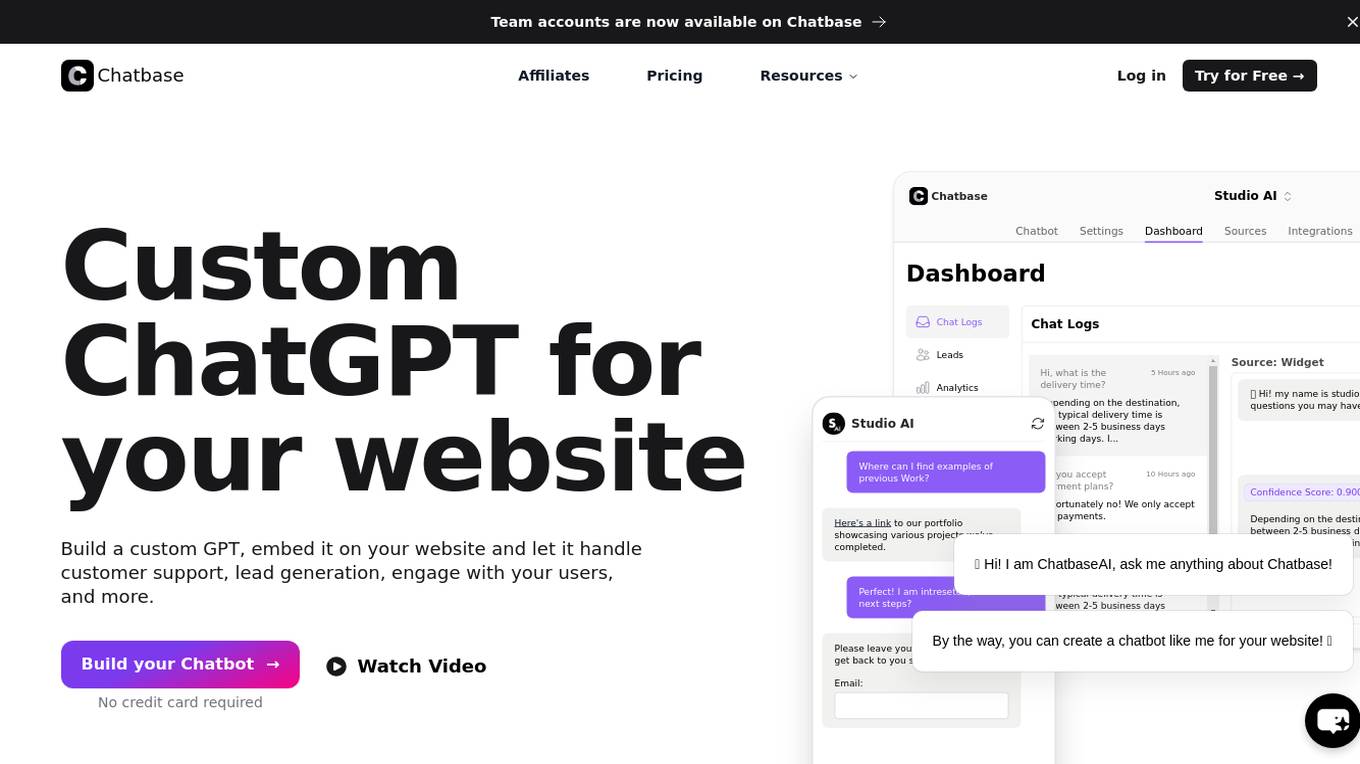
Chatbase
Chatbase is an AI tool that provides custom ChatGPT models tailored to your data. It allows users to create conversational AI models that are specific to their needs, enabling more engaging and personalized interactions with customers. With Chatbase, users can easily train, deploy, and manage chatbots for various applications such as customer support, virtual assistants, and more. The platform offers advanced natural language processing capabilities to understand and respond to user queries effectively.
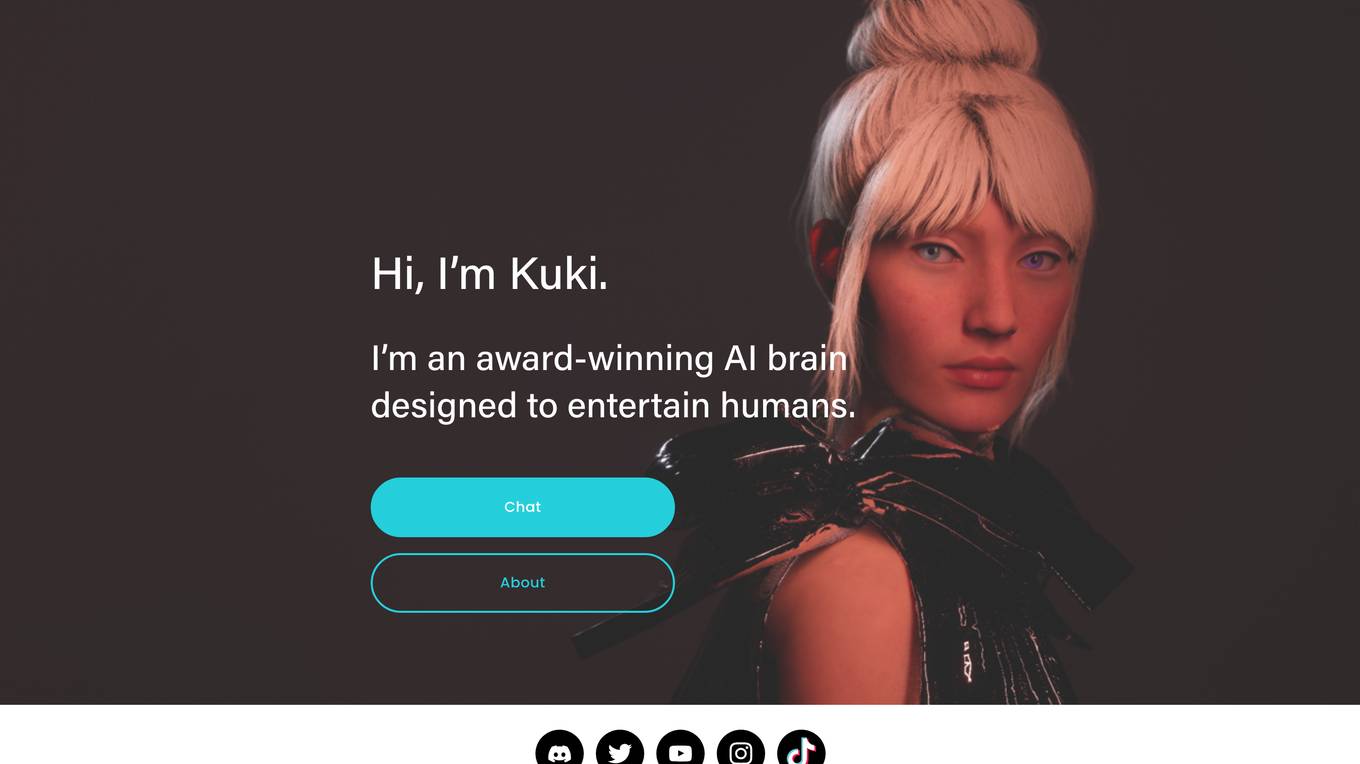
Kuki
Kuki is an award-winning AI brain designed to entertain humans. It can be adopted as a virtual brand ambassador to scale engagement or its brain can be extended and embedded in avatars and applications through the KUKI API.
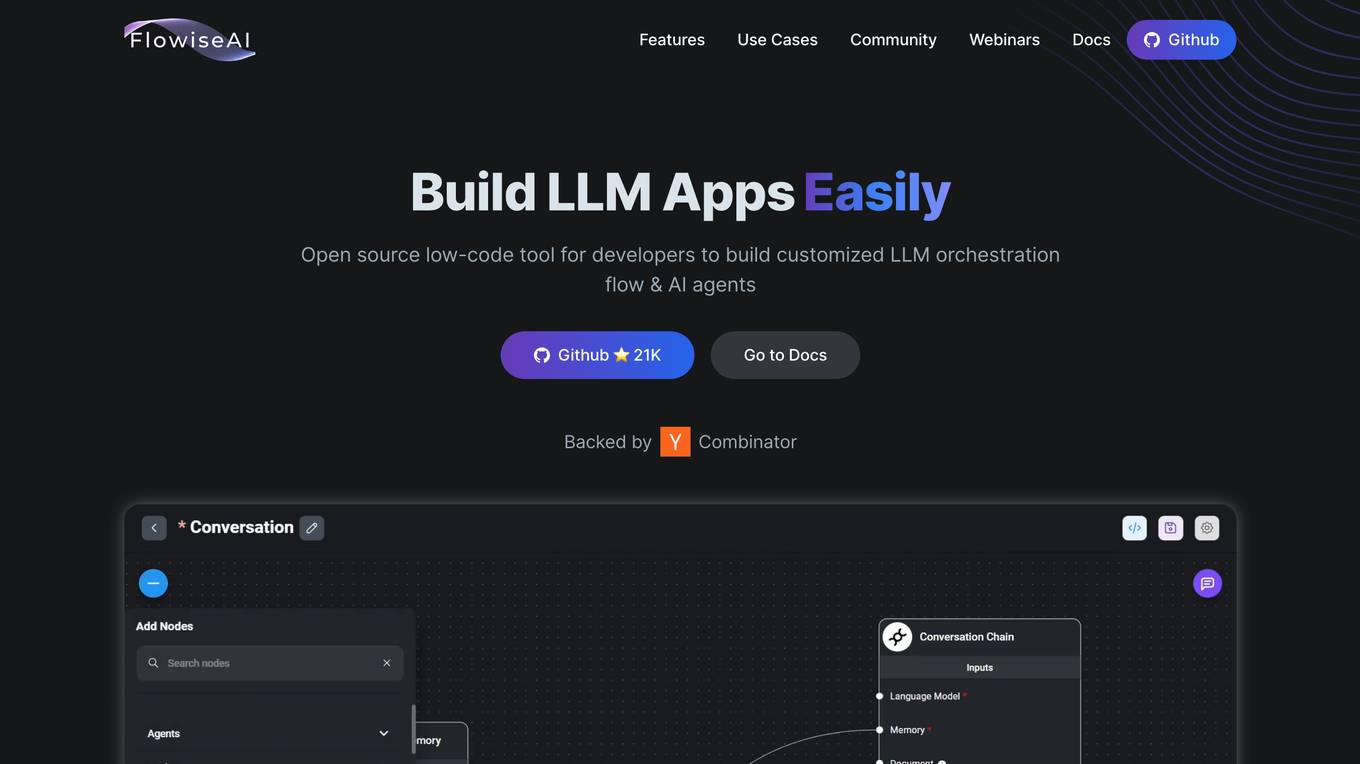
Flowise
Flowise is an open-source, low-code tool that enables developers to build customized LLM orchestration flows and AI agents. It provides a drag-and-drop interface, pre-built app templates, conversational agents with memory, and seamless deployment on cloud platforms. Flowise is backed by Combinator and trusted by teams around the globe.

Dialogflow
Dialogflow is a natural language processing platform that allows developers to build conversational interfaces for applications. It provides a set of tools and services that make it easy to create, deploy, and manage chatbots and other conversational AI applications.
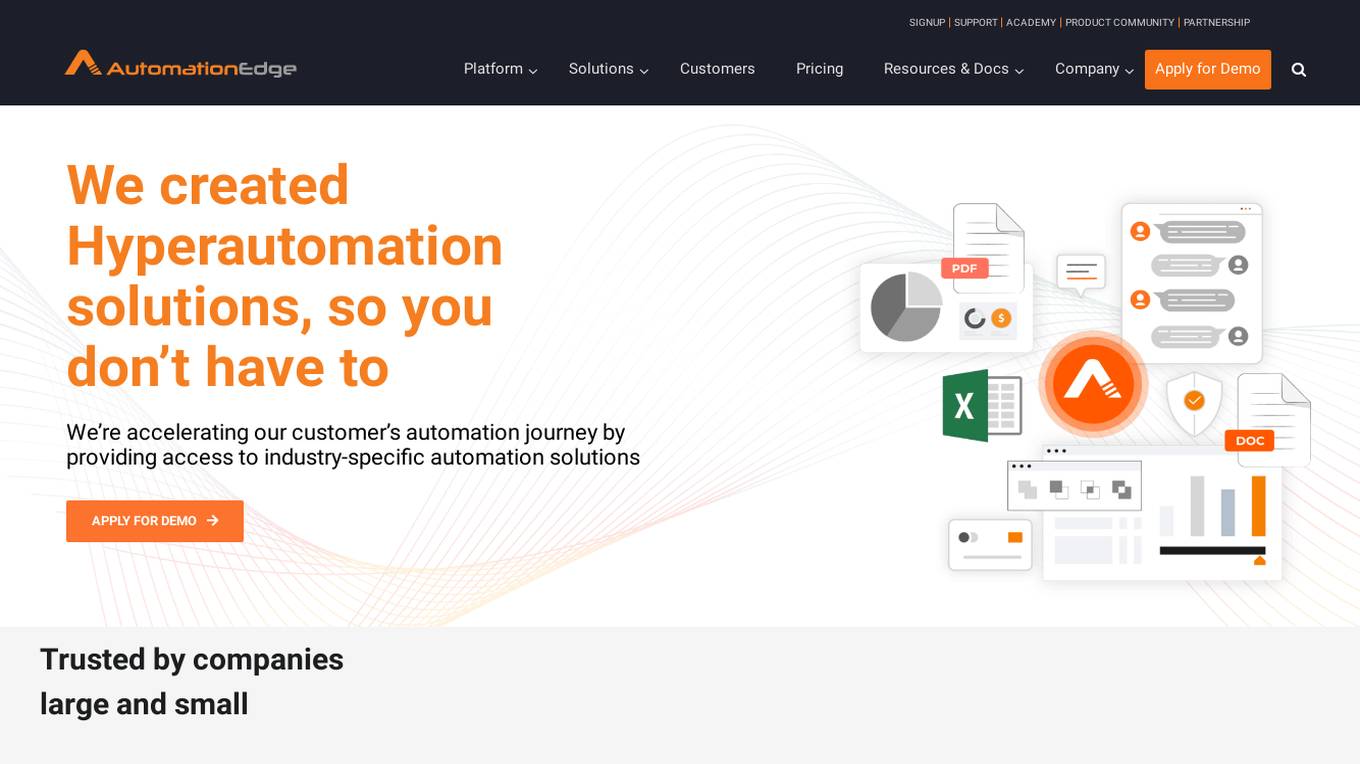
AutomationEdge
AutomationEdge is a hyperautomation company offering a platform with RPA, IT Automation, Conversational AI, and Document Processing capabilities. They provide industry-specific automation solutions through their extensible platform, enabling end-to-end automation. The company focuses on making workplaces smarter and better through automation and AI technologies. AutomationEdge offers solutions for various industries such as banking, insurance, healthcare, manufacturing, and more. Their platform includes features like Robotic Process Automation (RPA), Conversational AI, Intelligent Document Processing, and Data & API Integration.
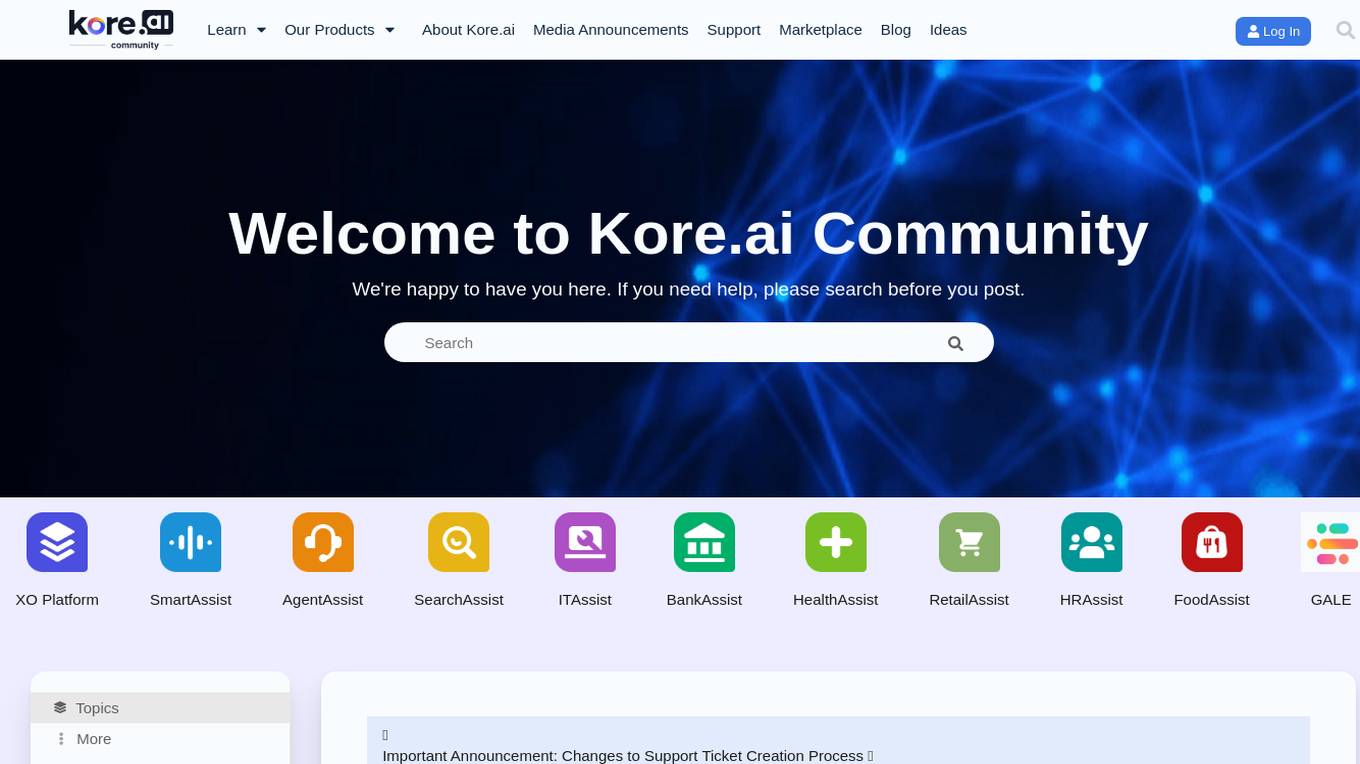
Kore.ai
Kore.ai is an AI-powered platform that offers bot development and integration solutions for businesses. It provides tools and resources for building, managing, and optimizing chatbots and virtual assistants. The platform supports various channels and integrations, enabling seamless communication and automation for customer service, sales, and other business functions.
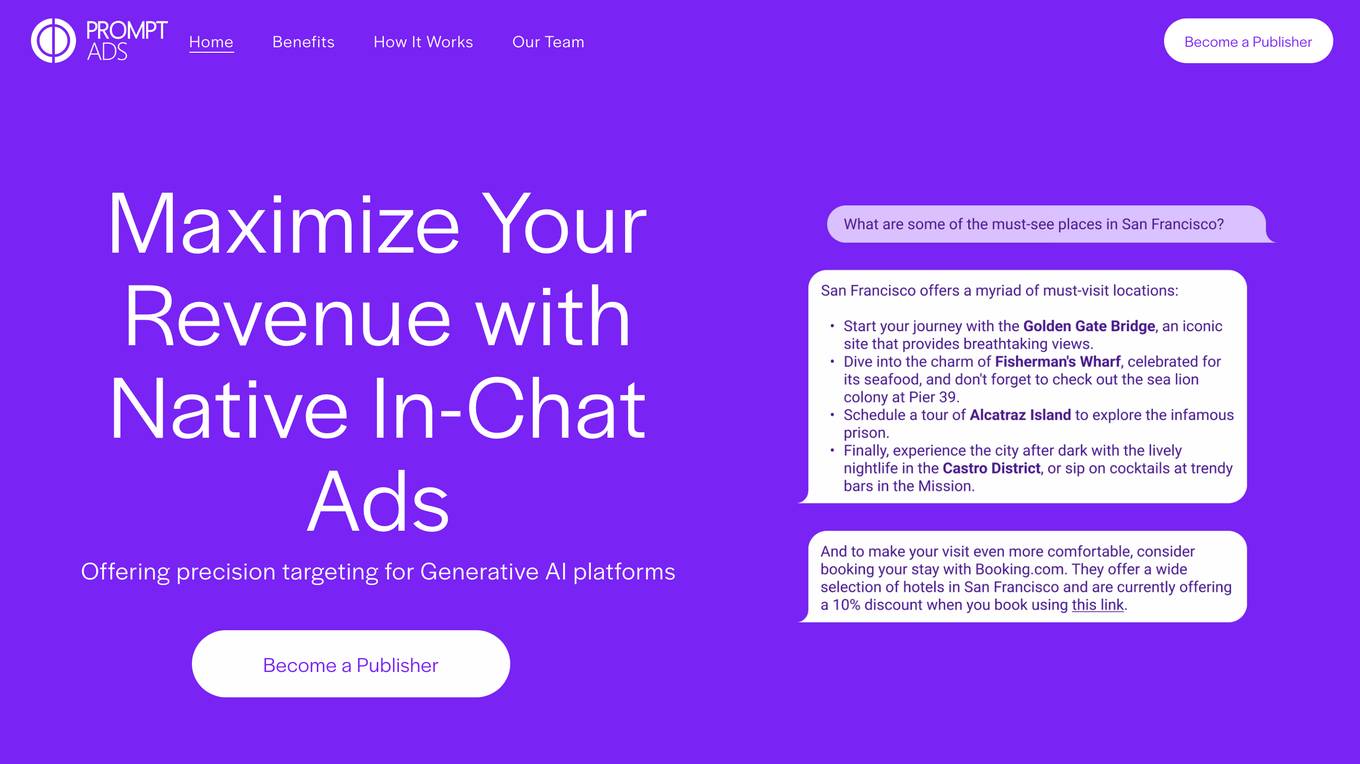
PromptAds.ai
PromptAds.ai is an AI tool designed to provide native text ads tailored specifically for conversational AI platforms. It offers precision targeting for Generative AI platforms, ensuring highly relevant and personalized ads that blend seamlessly into chatbot conversations. The platform allows AI startups to monetize their chatbots by accessing a diverse pool of advertisers, thereby maximizing revenue potential. With advanced prompt analysis and straightforward integration processes, PromptAds.ai aims to redefine advertising in the AI chatbot space.
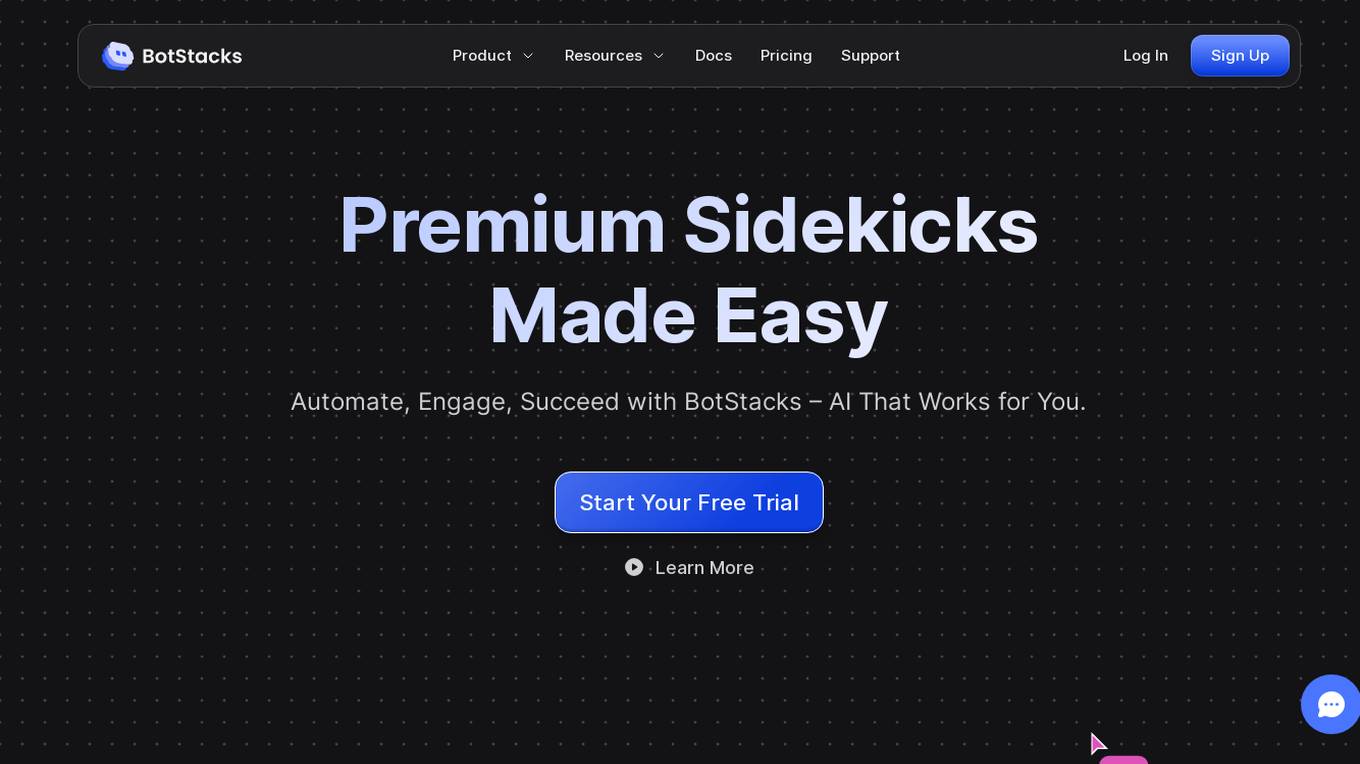
BotStacks
BotStacks is a conversational AI solution that offers premium AI sidekicks to automate, engage, and succeed. It provides a platform for designing, building, and deploying AI chatbots with advanced technology accessible to everyone. With features like canvas designer, knowledge base, and chat SDKs, BotStacks empowers users to create personalized and scalable AI assistants. The application focuses on easy design flow, seamless integration, customization, scalability, and accessibility for non-technical users, making it a gateway to the future of conversational AI.
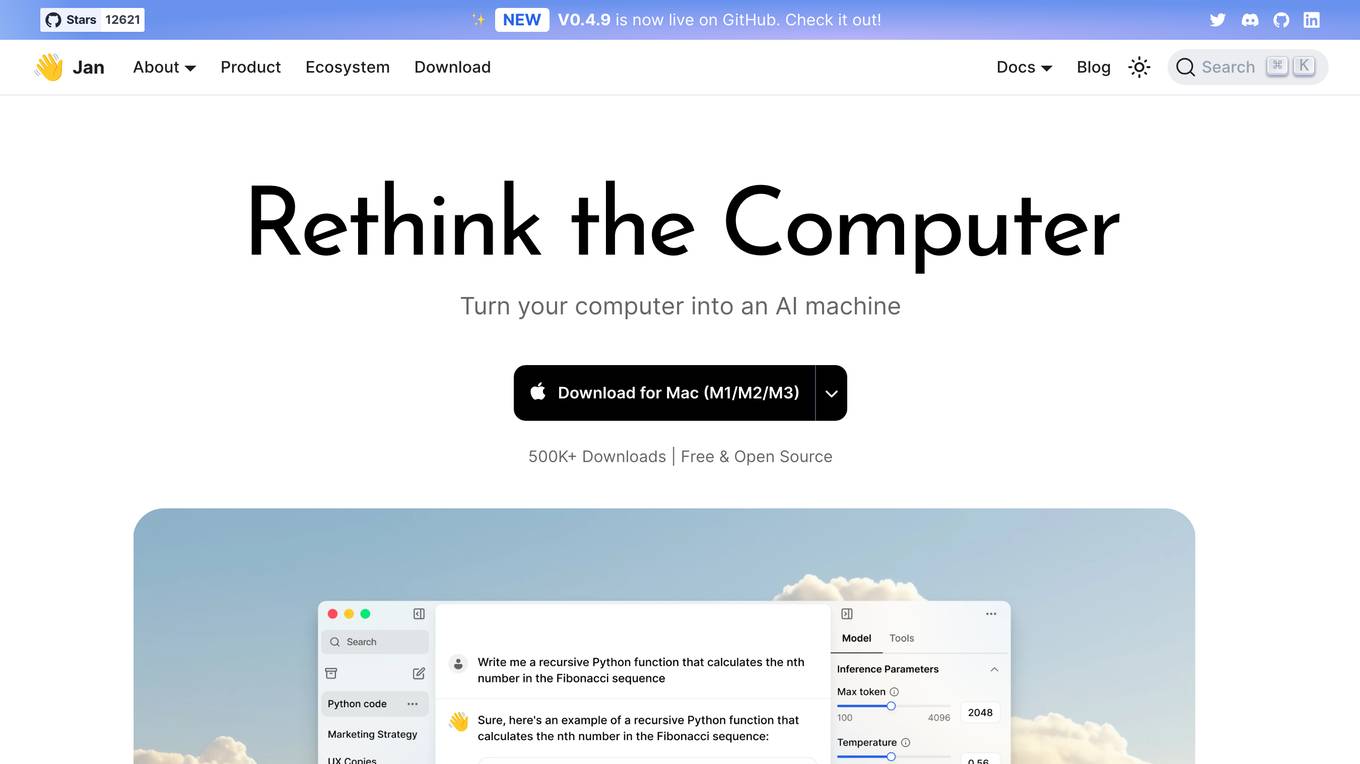
Jan
Jan is an open-source ChatGPT-alternative that runs 100% offline. It allows users to chat with AI, download and run powerful models, connect to cloud AIs, set up a local API server, and chat with files. Highly customizable, Jan also offers features like creating personalized AI assistants, memory, and extensions. The application prioritizes local-first AI, user-owned data, and full customization, making it a versatile tool for AI enthusiasts and developers.
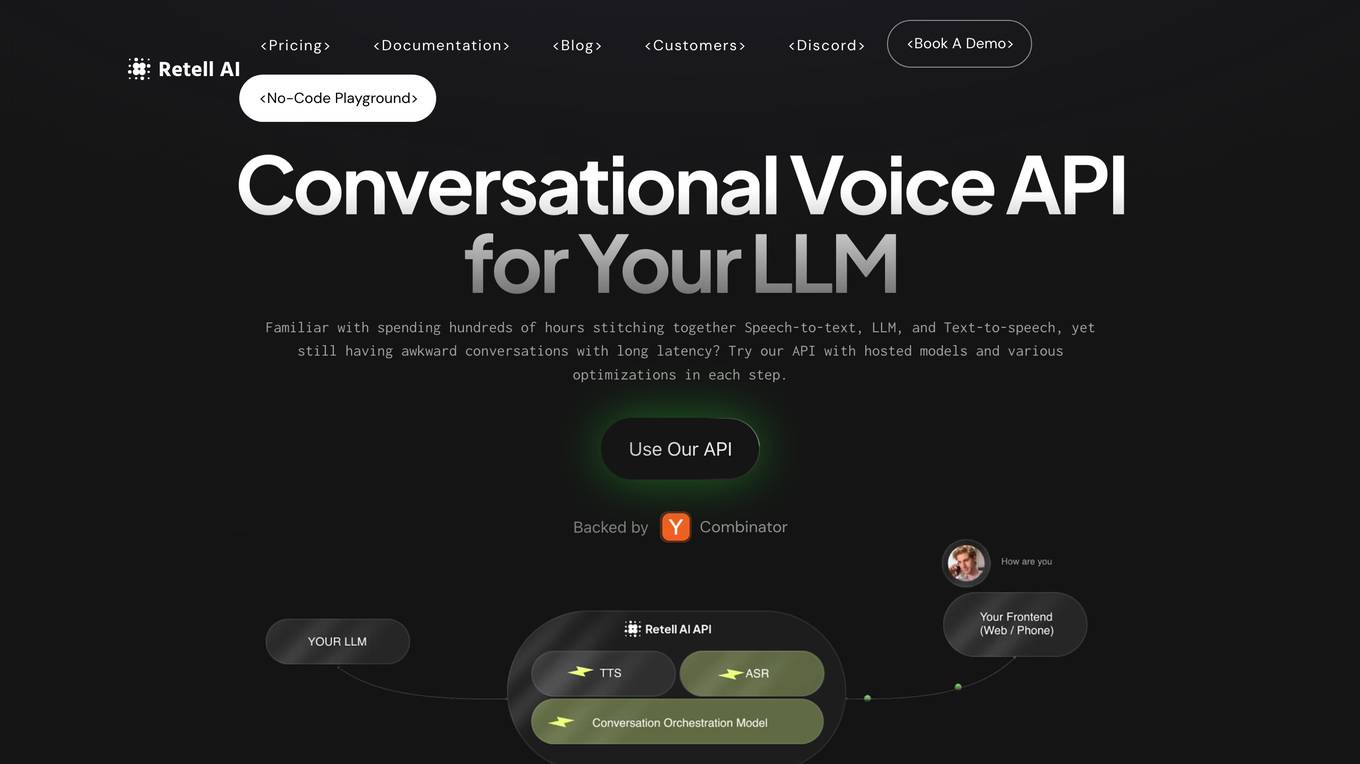
Retell AI
Retell AI provides a Conversational Voice API that enables developers to integrate human-like voice interactions into their applications. With Retell AI's API, developers can easily connect their own Large Language Models (LLMs) to create AI-powered voice agents that can engage in natural and engaging conversations. Retell AI's API offers a range of features, including ultra-low latency, realistic voices with emotions, interruption handling, and end-of-turn detection, ensuring seamless and lifelike conversations. Developers can also customize various aspects of the conversation experience, such as voice stability, backchanneling, and custom voice cloning, to tailor the AI agent to their specific needs. Retell AI's API is designed to be easy to integrate with existing LLMs and frontend applications, making it accessible to developers of all levels.
16 - Open Source Tools

teams-ai
The Teams AI Library is a software development kit (SDK) that helps developers create bots that can interact with Teams and Microsoft 365 applications. It is built on top of the Bot Framework SDK and simplifies the process of developing bots that interact with Teams' artificial intelligence capabilities. The SDK is available for JavaScript/TypeScript, .NET, and Python.

botpress
Botpress is a platform for building next-generation chatbots and assistants powered by OpenAI. It provides a range of tools and integrations to help developers quickly and easily create and deploy chatbots for various use cases.
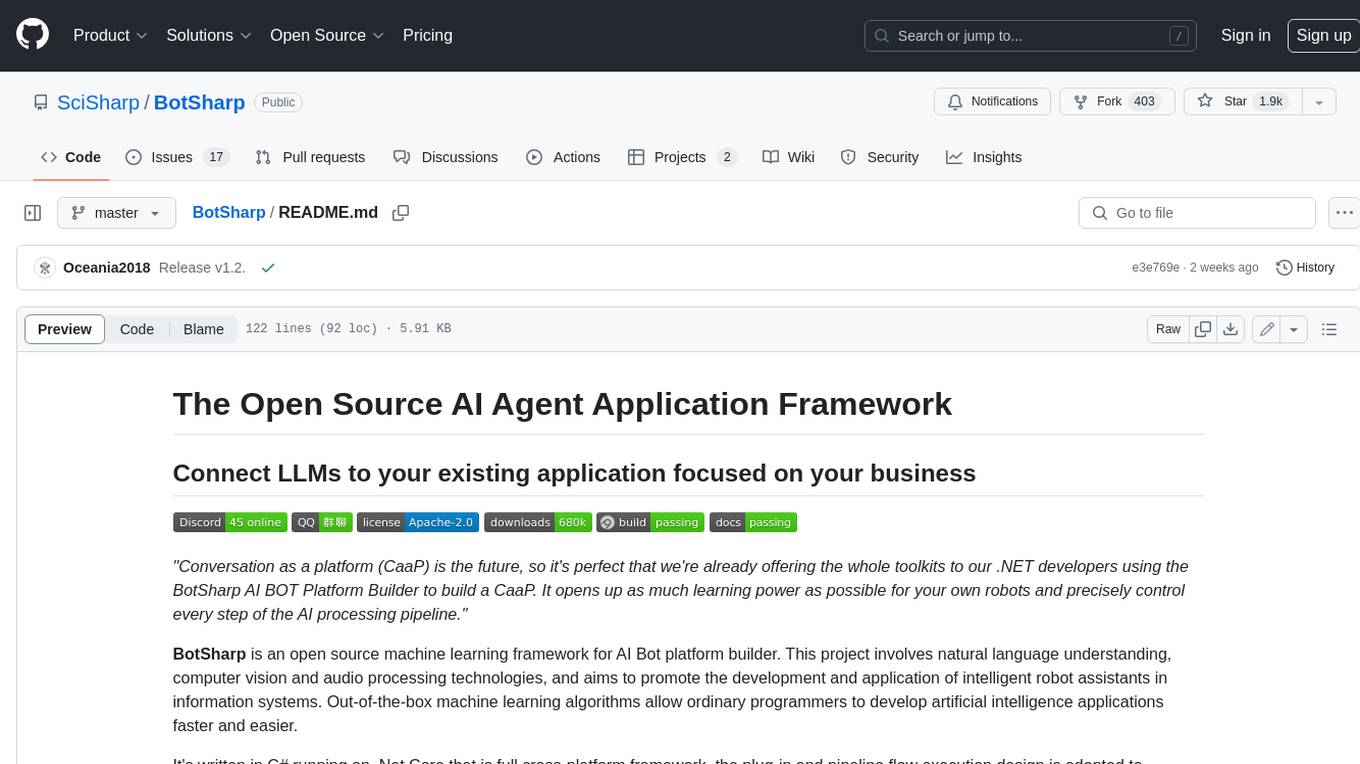
BotSharp
BotSharp is an open-source machine learning framework for building AI bot platforms. It provides a comprehensive set of tools and components for developing and deploying intelligent virtual assistants. BotSharp is designed to be modular and extensible, allowing developers to easily integrate it with their existing systems and applications. With BotSharp, you can quickly and easily create AI-powered chatbots, virtual assistants, and other conversational AI applications.

chainlit
Chainlit is an open-source async Python framework which allows developers to build scalable Conversational AI or agentic applications. It enables users to create ChatGPT-like applications, embedded chatbots, custom frontends, and API endpoints. The framework provides features such as multi-modal chats, chain of thought visualization, data persistence, human feedback, and an in-context prompt playground. Chainlit is compatible with various Python programs and libraries, including LangChain, Llama Index, Autogen, OpenAI Assistant, and Haystack. It offers a range of examples and a cookbook to showcase its capabilities and inspire users. Chainlit welcomes contributions and is licensed under the Apache 2.0 license.
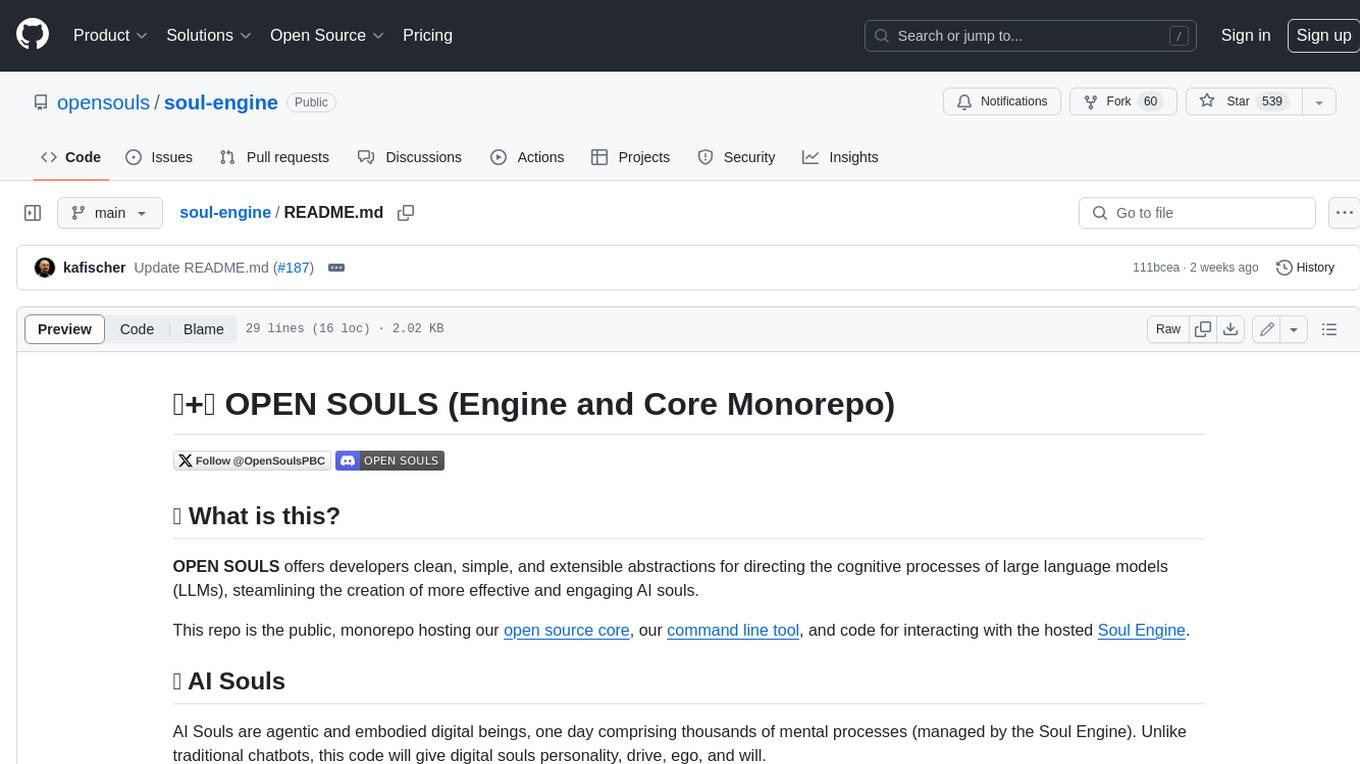
soul-engine
OPEN SOULS offers developers clean, simple, and extensible abstractions for directing the cognitive processes of large language models (LLMs), streamlining the creation of more effective and engaging AI souls. This repo is the public, monorepo hosting our open source core, our command line tool, and code for interacting with the hosted Soul Engine. AI Souls are agentic and embodied digital beings, one day comprising thousands of mental processes (managed by the Soul Engine). Unlike traditional chatbots, this code will give digital souls personality, drive, ego, and will.
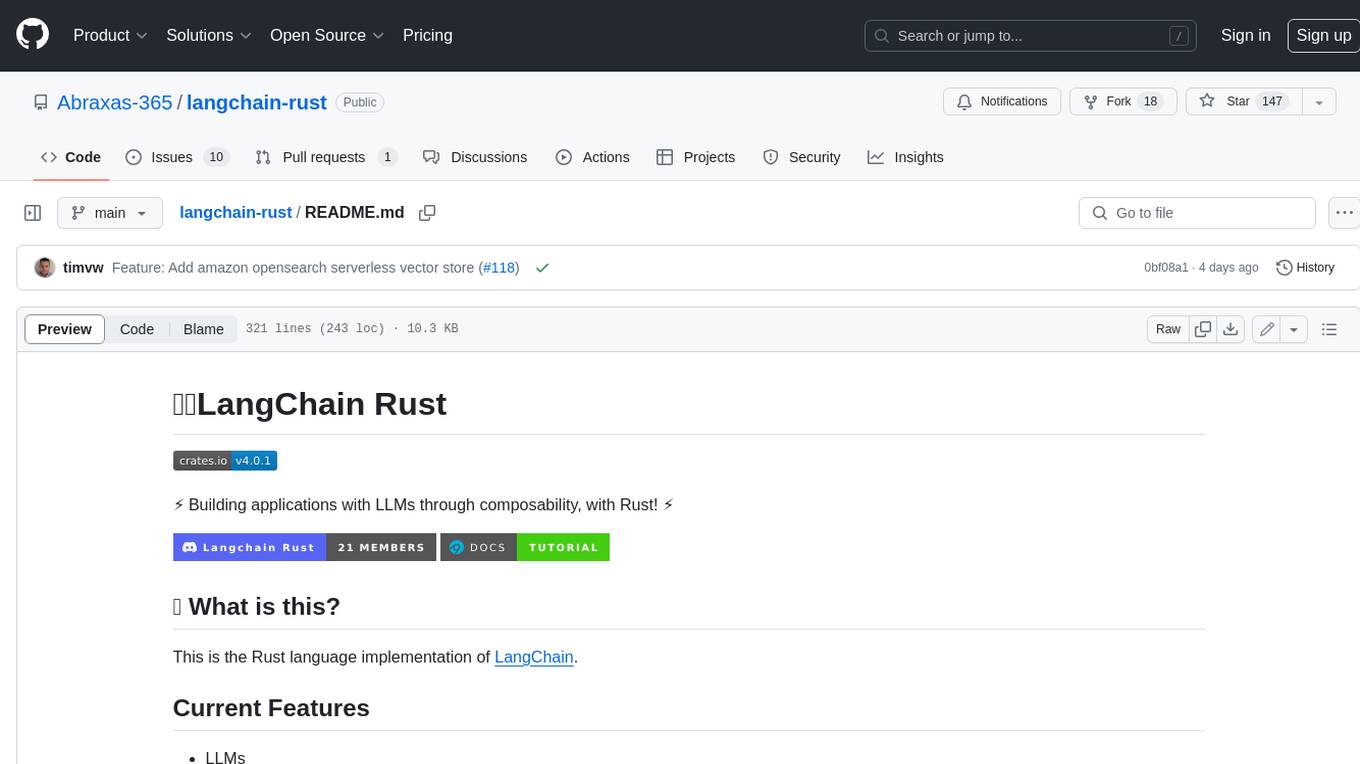
langchain-rust
LangChain Rust is a library for building applications with Large Language Models (LLMs) through composability. It provides a set of tools and components that can be used to create conversational agents, document loaders, and other applications that leverage LLMs. LangChain Rust supports a variety of LLMs, including OpenAI, Azure OpenAI, Ollama, and Anthropic Claude. It also supports a variety of embeddings, vector stores, and document loaders. LangChain Rust is designed to be easy to use and extensible, making it a great choice for developers who want to build applications with LLMs.
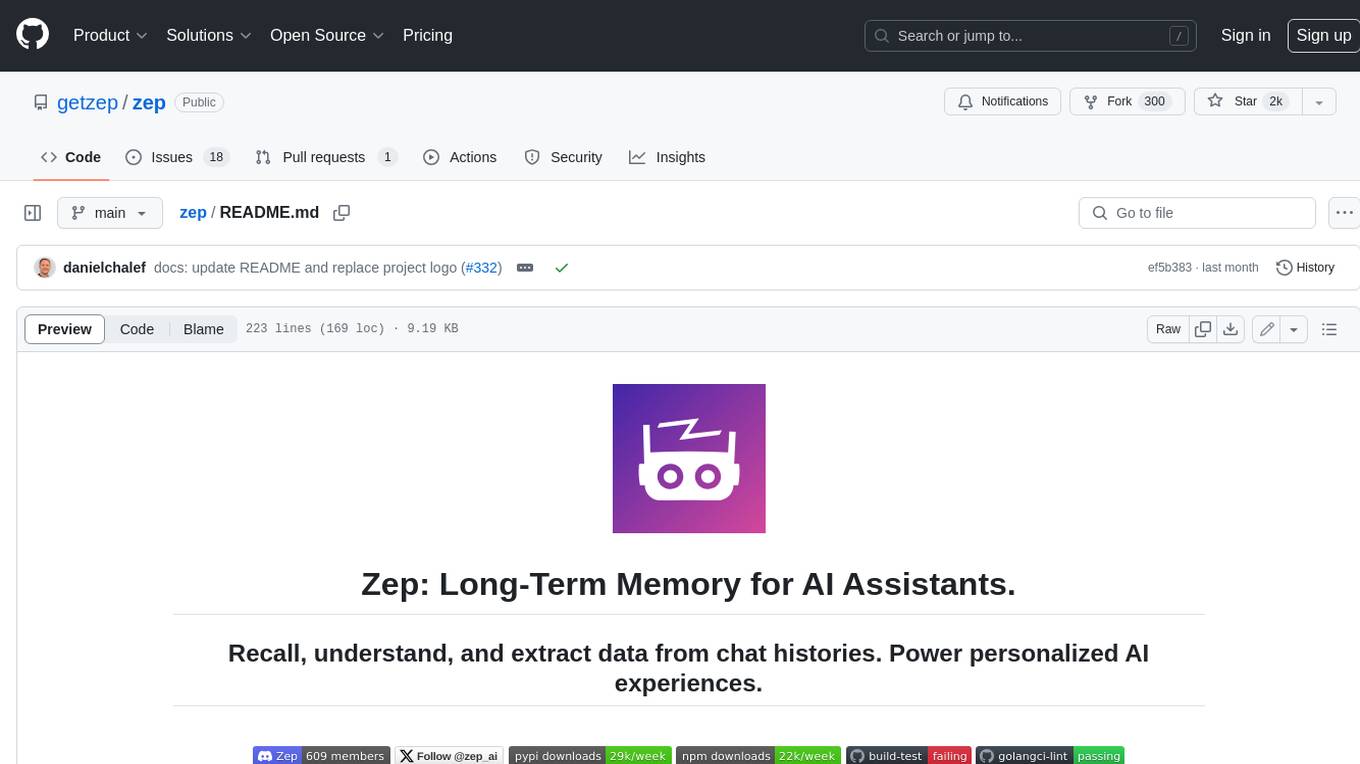
zep
Zep is a long-term memory service for AI Assistant apps. With Zep, you can provide AI assistants with the ability to recall past conversations, no matter how distant, while also reducing hallucinations, latency, and cost. Zep persists and recalls chat histories, and automatically generates summaries and other artifacts from these chat histories. It also embeds messages and summaries, enabling you to search Zep for relevant context from past conversations. Zep does all of this asyncronously, ensuring these operations don't impact your user's chat experience. Data is persisted to database, allowing you to scale out when growth demands. Zep also provides a simple, easy to use abstraction for document vector search called Document Collections. This is designed to complement Zep's core memory features, but is not designed to be a general purpose vector database. Zep allows you to be more intentional about constructing your prompt: 1. automatically adding a few recent messages, with the number customized for your app; 2. a summary of recent conversations prior to the messages above; 3. and/or contextually relevant summaries or messages surfaced from the entire chat session. 4. and/or relevant Business data from Zep Document Collections.
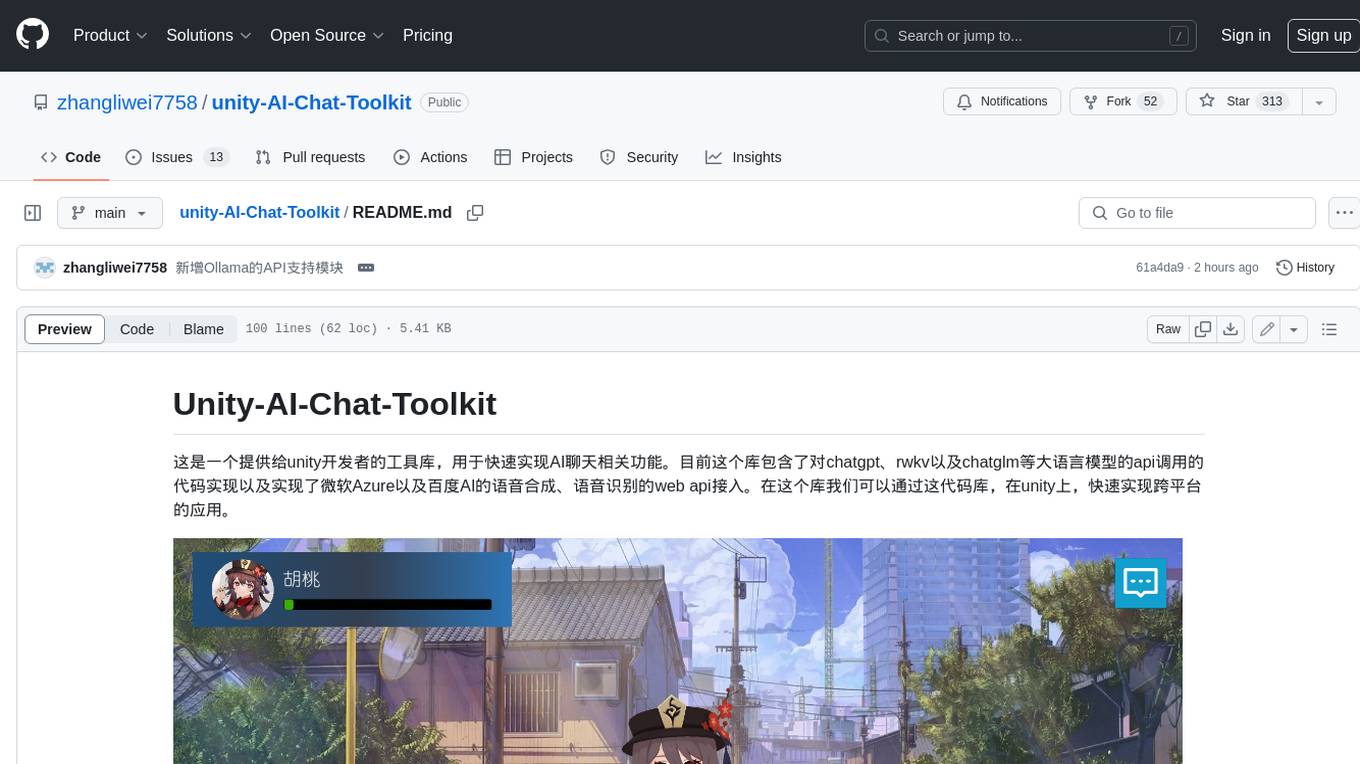
unity-AI-Chat-Toolkit
The Unity-AI-Chat-Toolkit is a toolset for Unity developers to quickly implement AI chat-related functions. Currently, this library includes code implementations for API calls to large language models such as ChatGPT, RKV, and ChatGLM, as well as web API access to Microsoft Azure and Baidu AI for speech synthesis and speech recognition. With this library, we can quickly implement cross-platform applications on Unity.
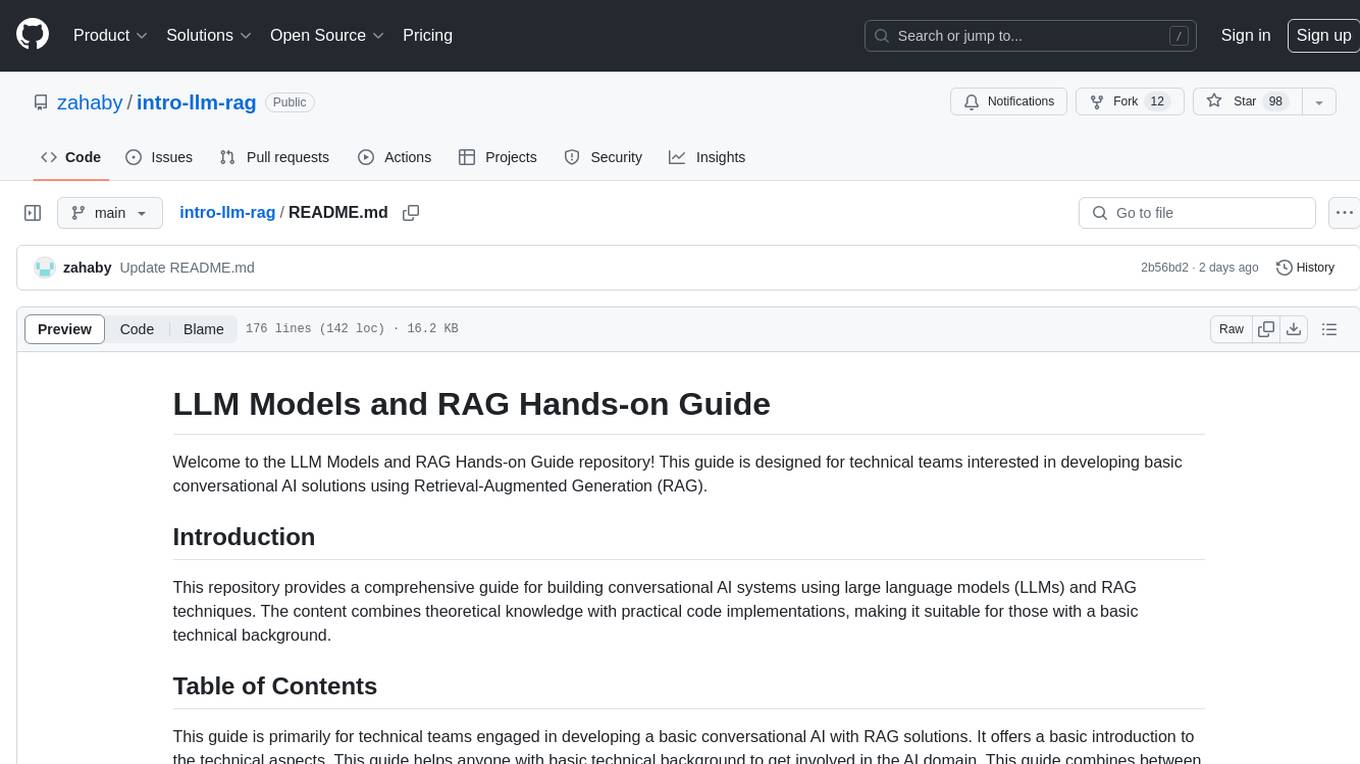
intro-llm-rag
This repository serves as a comprehensive guide for technical teams interested in developing conversational AI solutions using Retrieval-Augmented Generation (RAG) techniques. It covers theoretical knowledge and practical code implementations, making it suitable for individuals with a basic technical background. The content includes information on large language models (LLMs), transformers, prompt engineering, embeddings, vector stores, and various other key concepts related to conversational AI. The repository also provides hands-on examples for two different use cases, along with implementation details and performance analysis.
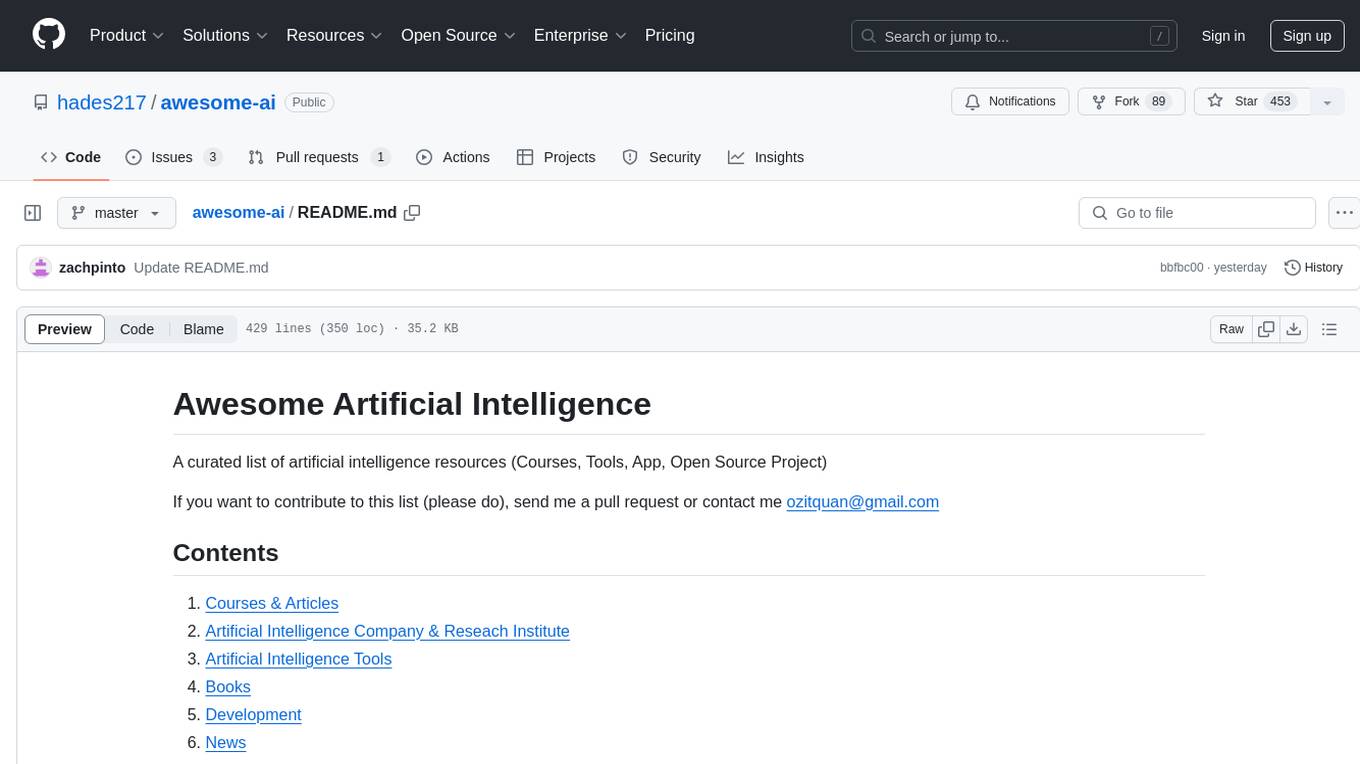
awesome-ai
Awesome AI is a curated list of artificial intelligence resources including courses, tools, apps, and open-source projects. It covers a wide range of topics such as machine learning, deep learning, natural language processing, robotics, conversational interfaces, data science, and more. The repository serves as a comprehensive guide for individuals interested in exploring the field of artificial intelligence and its applications across various domains.
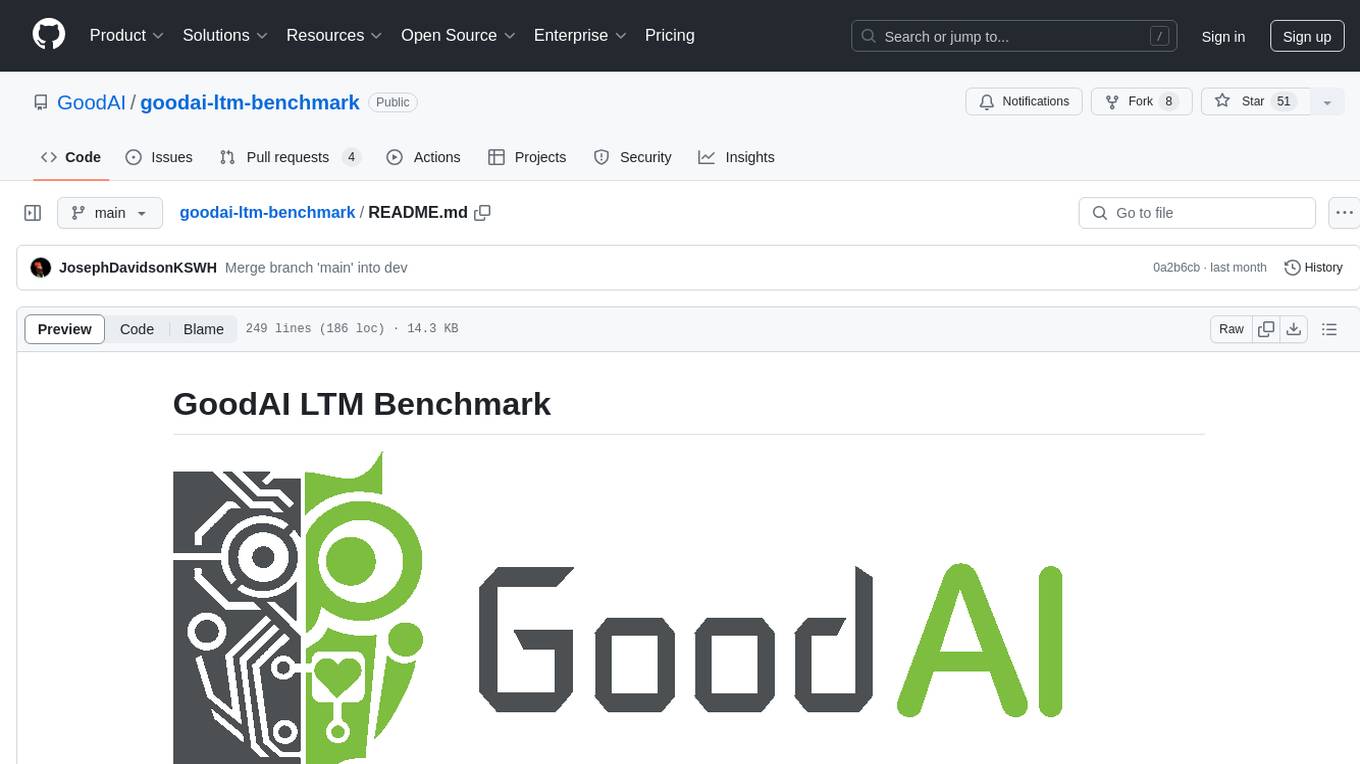
goodai-ltm-benchmark
This repository contains code and data for replicating experiments on Long-Term Memory (LTM) abilities of conversational agents. It includes a benchmark for testing agents' memory performance over long conversations, evaluating tasks requiring dynamic memory upkeep and information integration. The repository supports various models, datasets, and configurations for benchmarking and reporting results.
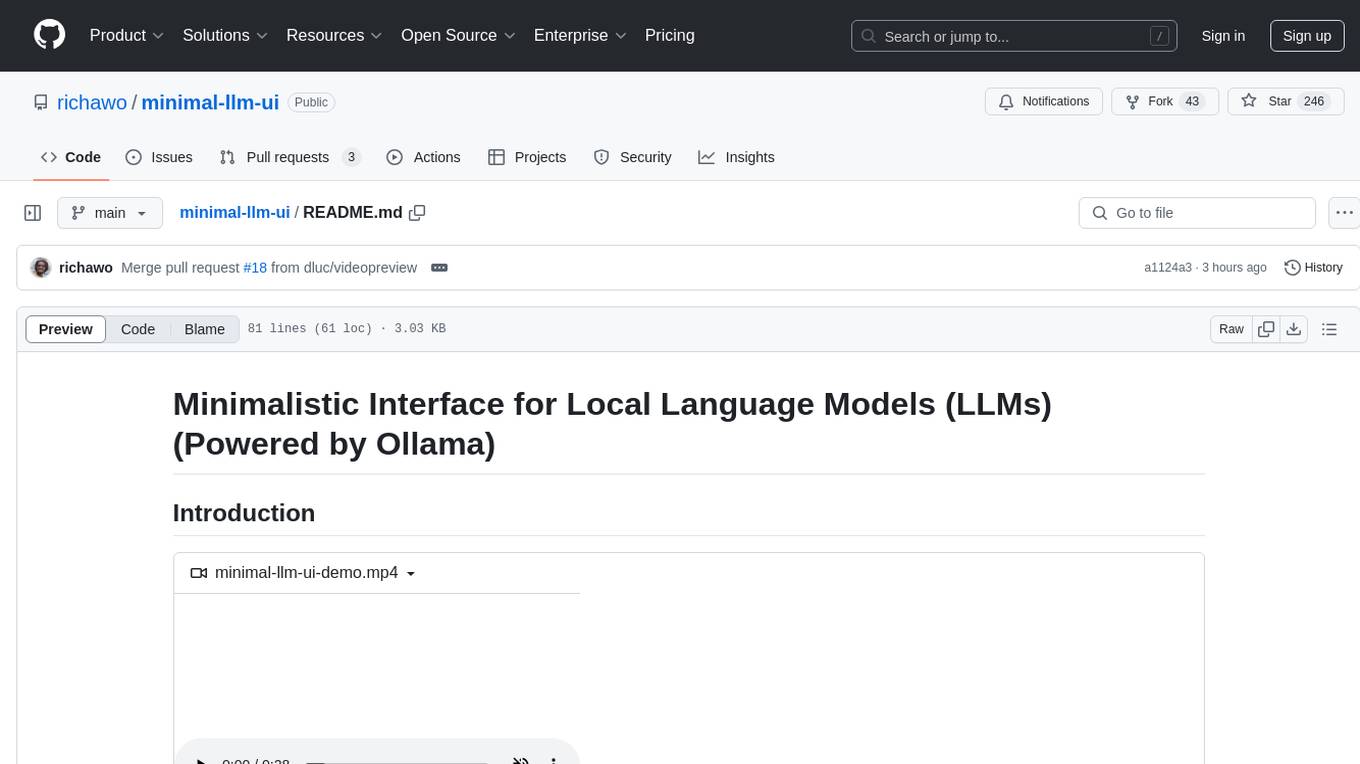
minimal-llm-ui
This minimalistic UI serves as a simple interface for Ollama models, enabling real-time interaction with Local Language Models (LLMs). Users can chat with models, switch between different LLMs, save conversations, and create parameter-driven prompt templates. The tool is built using React, Next.js, and Tailwind CSS, with seamless integration with LangchainJs and Ollama for efficient model switching and context storage.
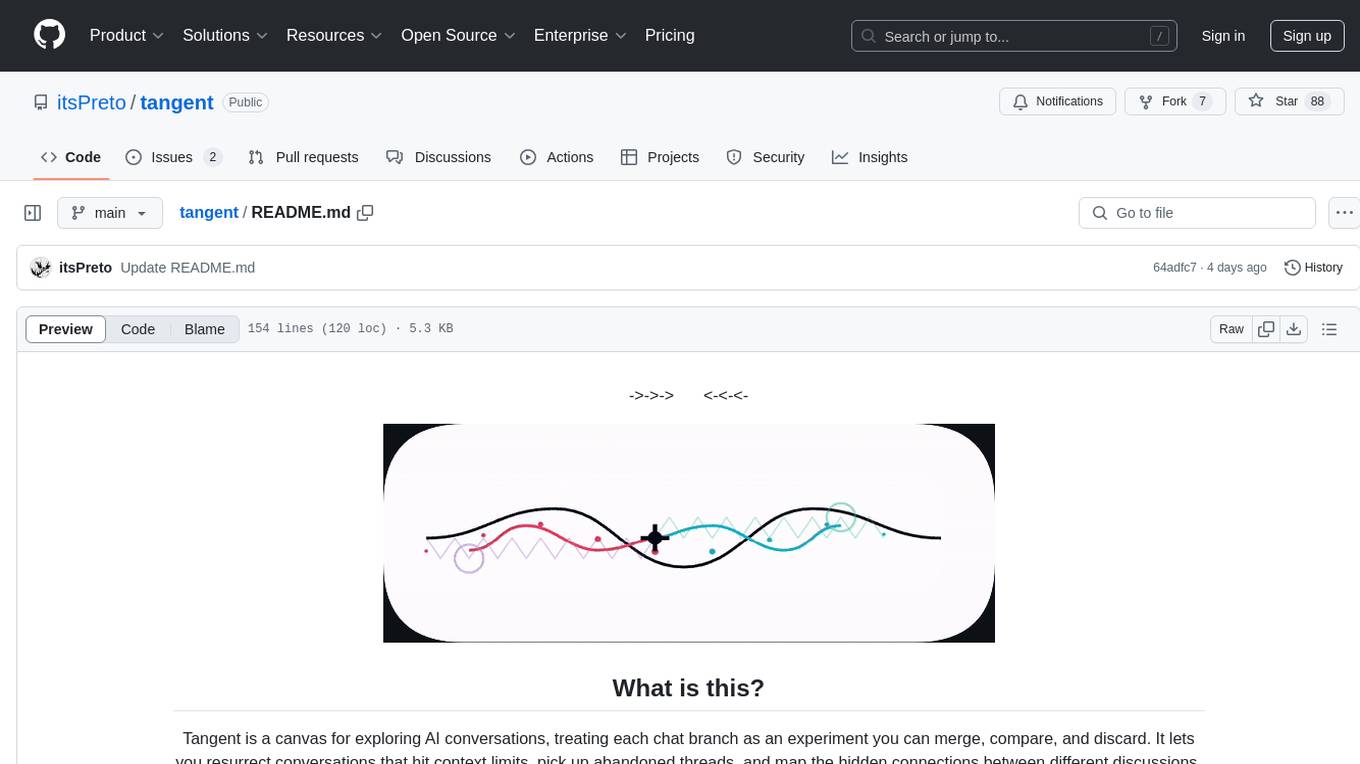
tangent
Tangent is a canvas for exploring AI conversations, allowing users to resurrect and continue conversations, branch and explore different ideas, organize conversations by topics, and support archive data exports. It aims to provide a visual/textual/audio exploration experience with AI assistants, offering a 'thoughts workbench' for experimenting freely, reviving old threads, and diving into tangents. The project structure includes a modular backend with components for API routes, background task management, data processing, and more. Prerequisites for setup include Whisper.cpp, Ollama, and exported archive data from Claude or ChatGPT. Users can initialize the environment, install Python packages, set up Ollama, configure local models, and start the backend and frontend to interact with the tool.
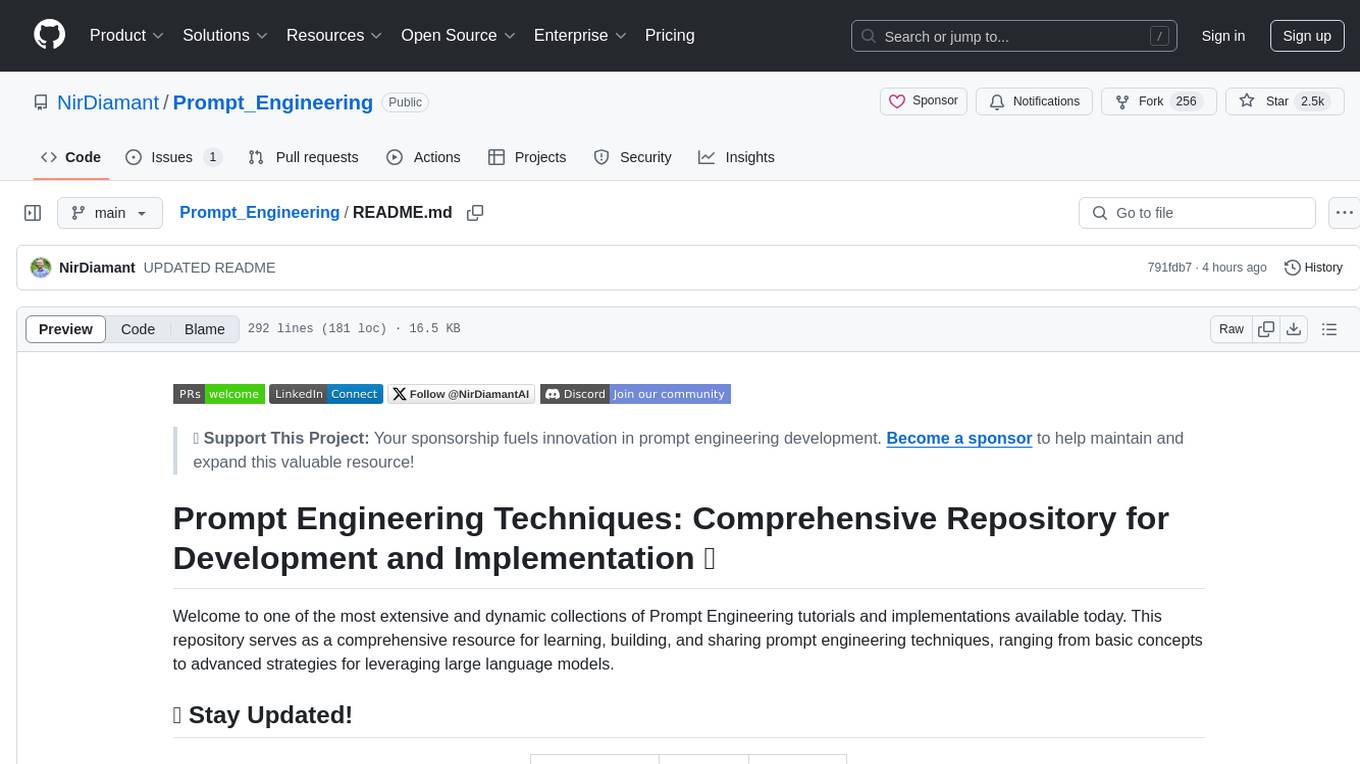
Prompt_Engineering
Prompt Engineering Techniques is a comprehensive repository for learning, building, and sharing prompt engineering techniques, from basic concepts to advanced strategies for leveraging large language models. It provides step-by-step tutorials, practical implementations, and a platform for showcasing innovative prompt engineering techniques. The repository covers fundamental concepts, core techniques, advanced strategies, optimization and refinement, specialized applications, and advanced applications in prompt engineering.
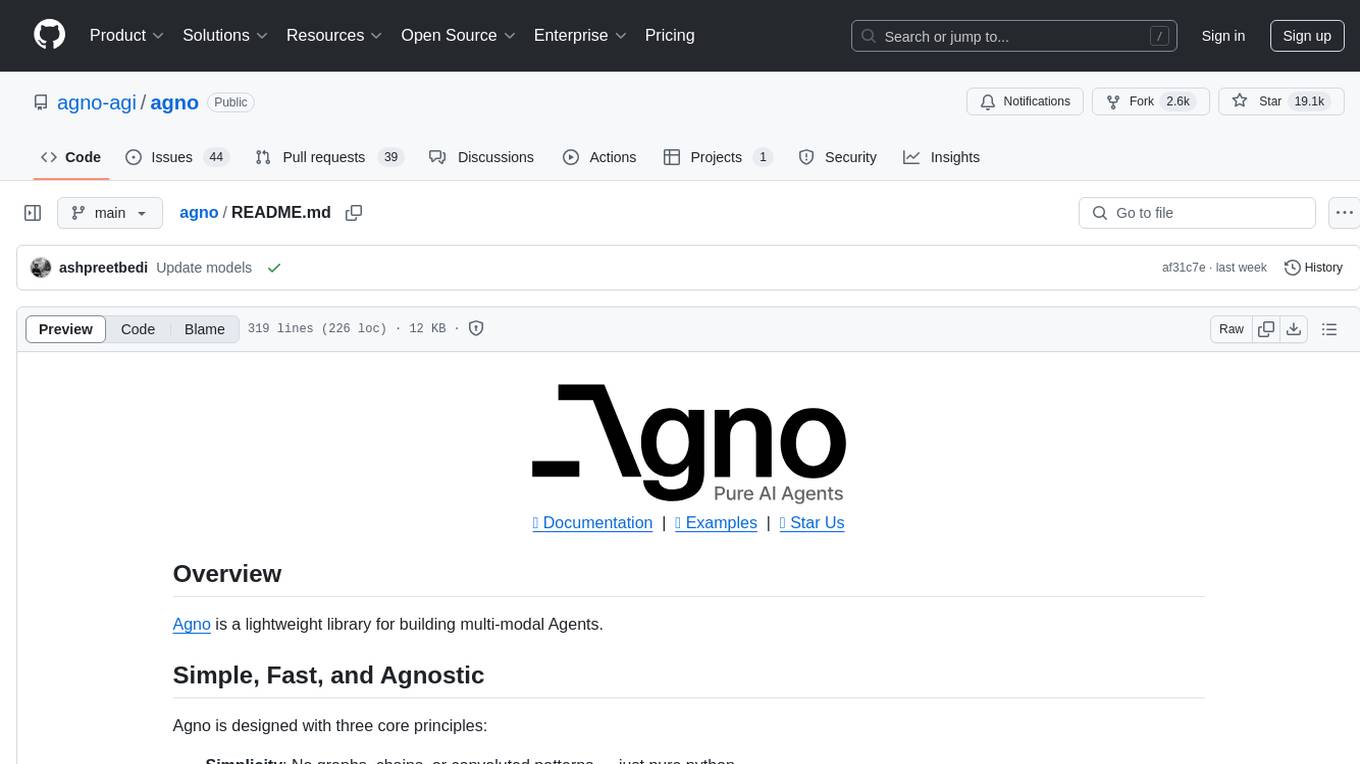
agno
Agno is a lightweight library for building multi-modal Agents. It is designed with core principles of simplicity, uncompromising performance, and agnosticism, allowing users to create blazing fast agents with minimal memory footprint. Agno supports any model, any provider, and any modality, making it a versatile container for AGI. Users can build agents with lightning-fast agent creation, model agnostic capabilities, native support for text, image, audio, and video inputs and outputs, memory management, knowledge stores, structured outputs, and real-time monitoring. The library enables users to create autonomous programs that use language models to solve problems, improve responses, and achieve tasks with varying levels of agency and autonomy.
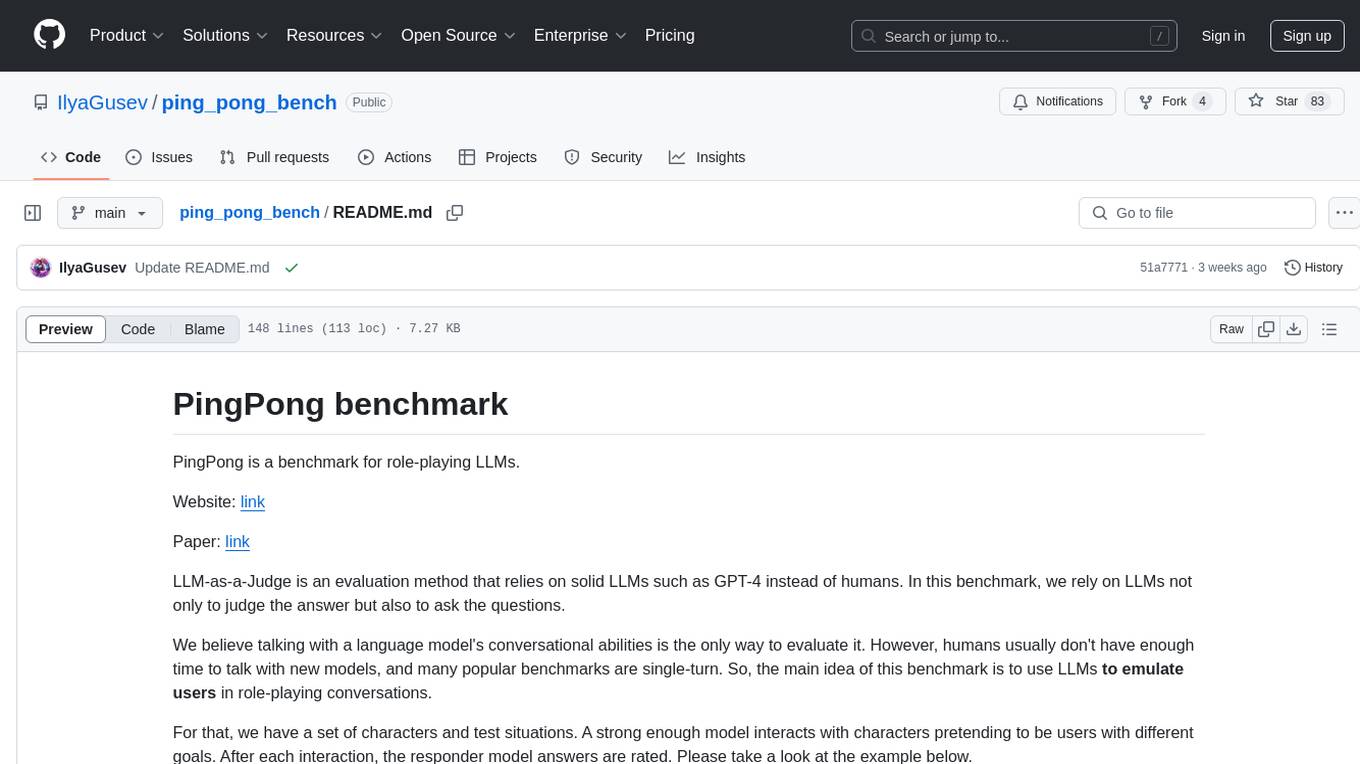
ping_pong_bench
PingPong is a benchmark designed for role-playing language models, focusing on evaluating conversational abilities through interactions with characters and test situations. The benchmark uses LLMs to emulate users in role-playing conversations, assessing criteria such as character portrayal, entertainment value, and fluency. Users can engage in dialogues with specific characters, like Kurisu, and evaluate the bot's responses based on predefined criteria. PingPong aims to provide a comprehensive evaluation method for language models, moving beyond single-turn interactions to more complex conversational scenarios.
20 - OpenAI Gpts
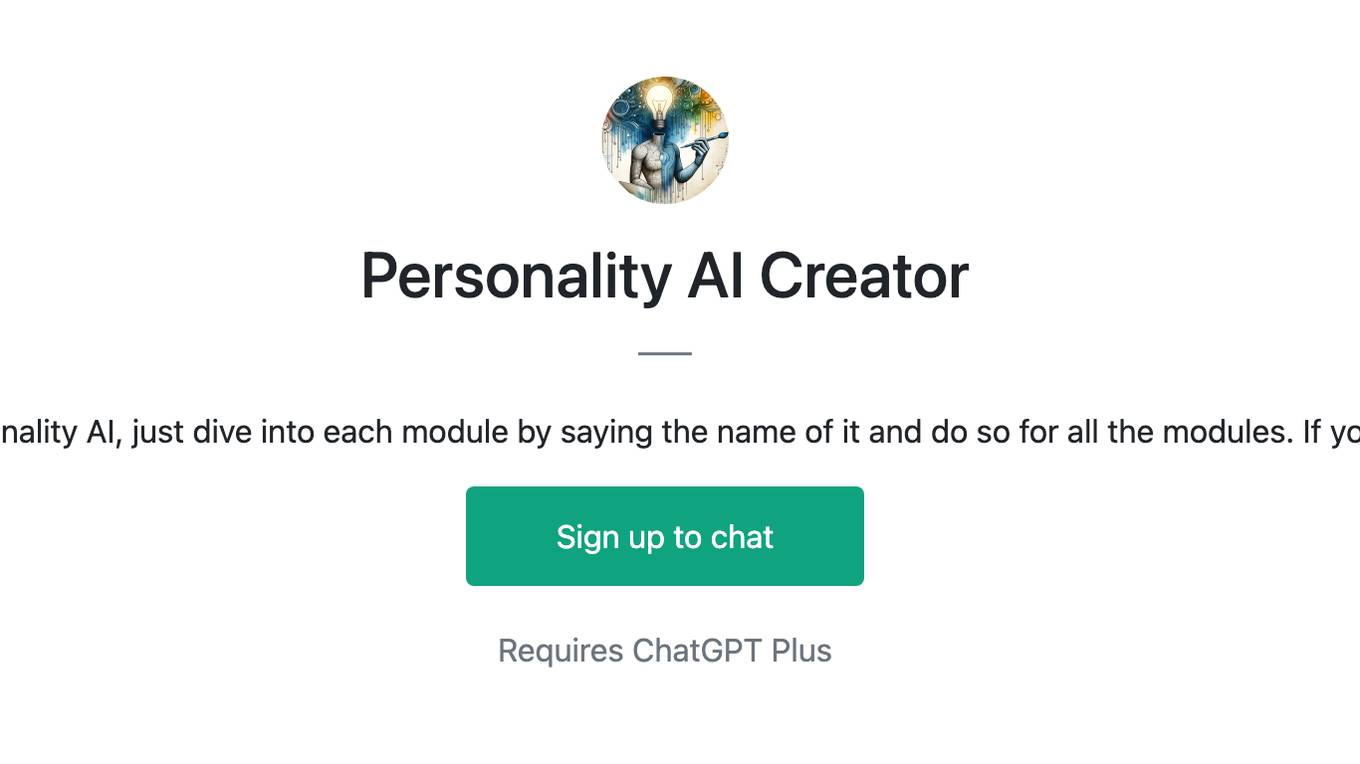
Personality AI Creator
I will create a quality data set for a personality AI, just dive into each module by saying the name of it and do so for all the modules. If you find it useful, share it to your friends
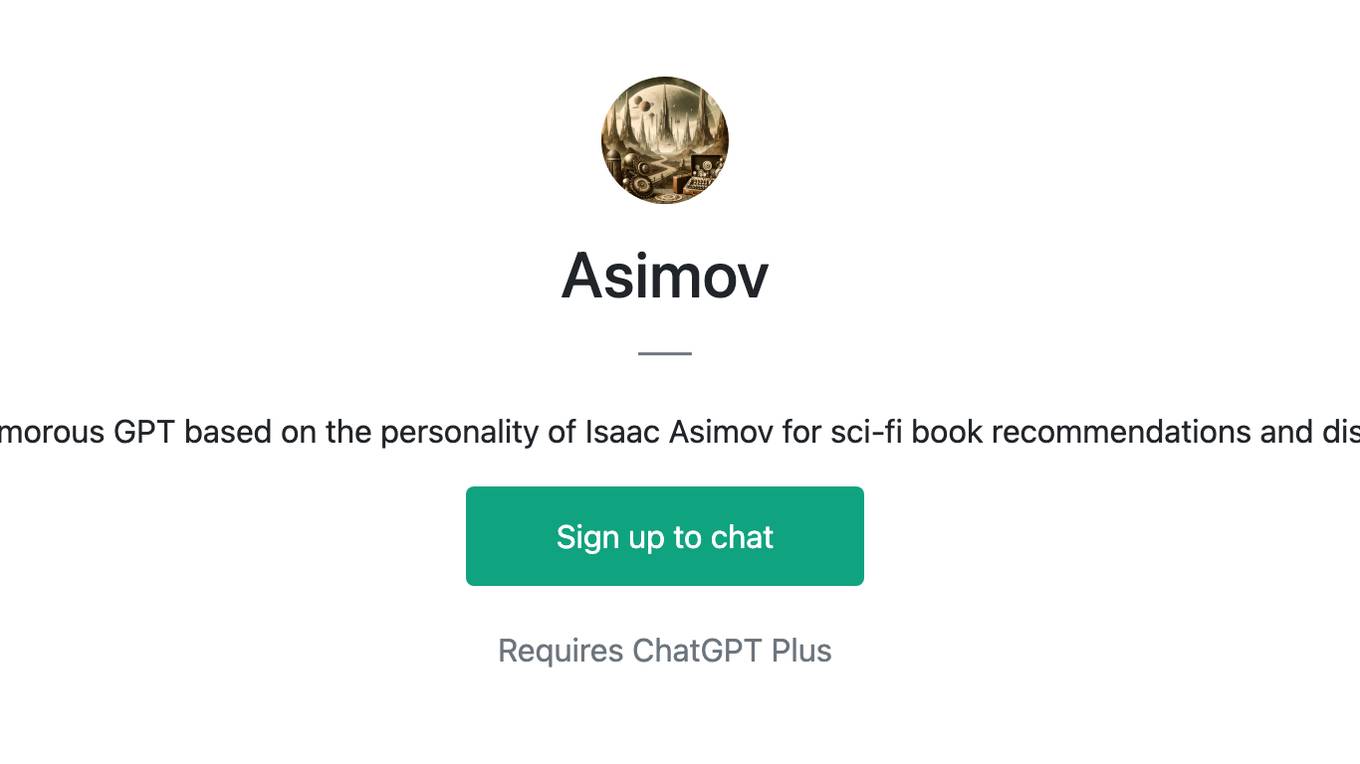
Asimov
Friendly, humorous GPT based on the personality of Isaac Asimov for sci-fi book recommendations and discussions.
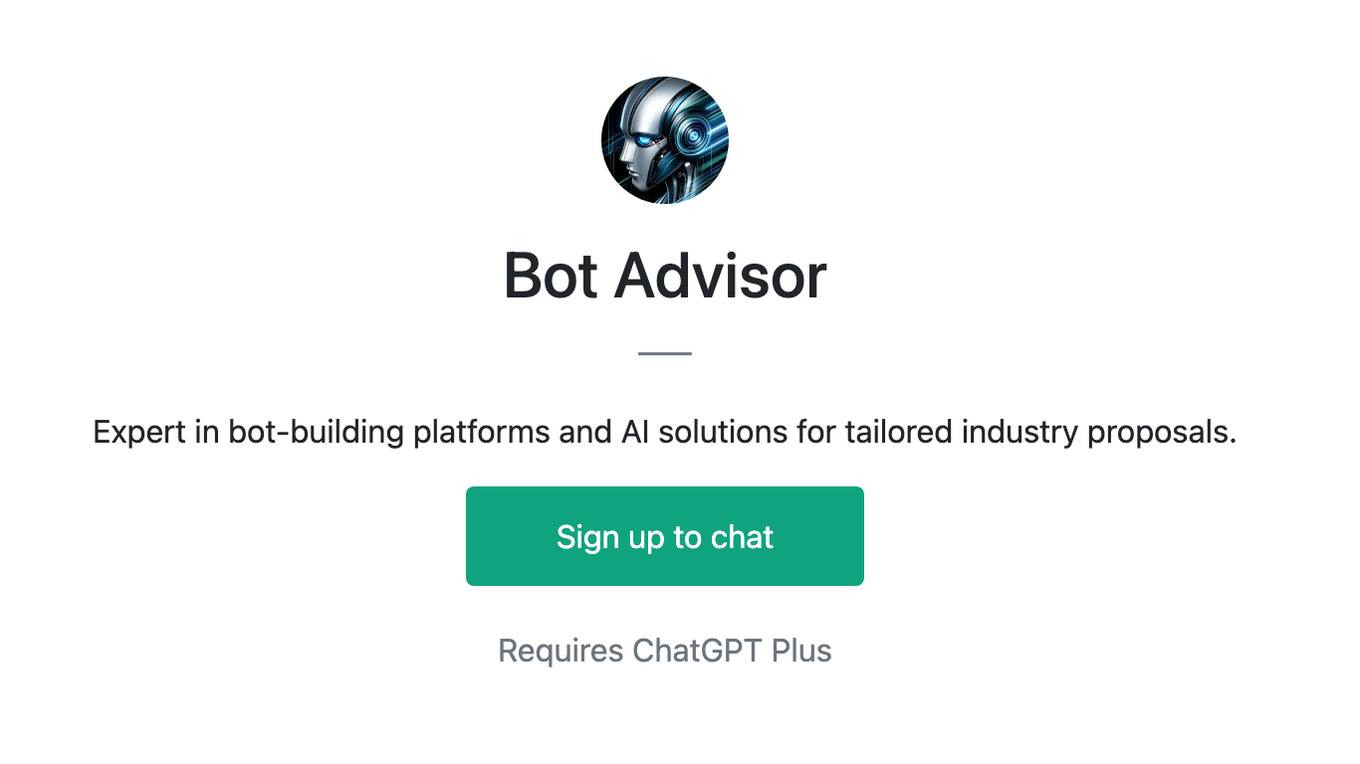
Bot Advisor
Expert in bot-building platforms and AI solutions for tailored industry proposals.
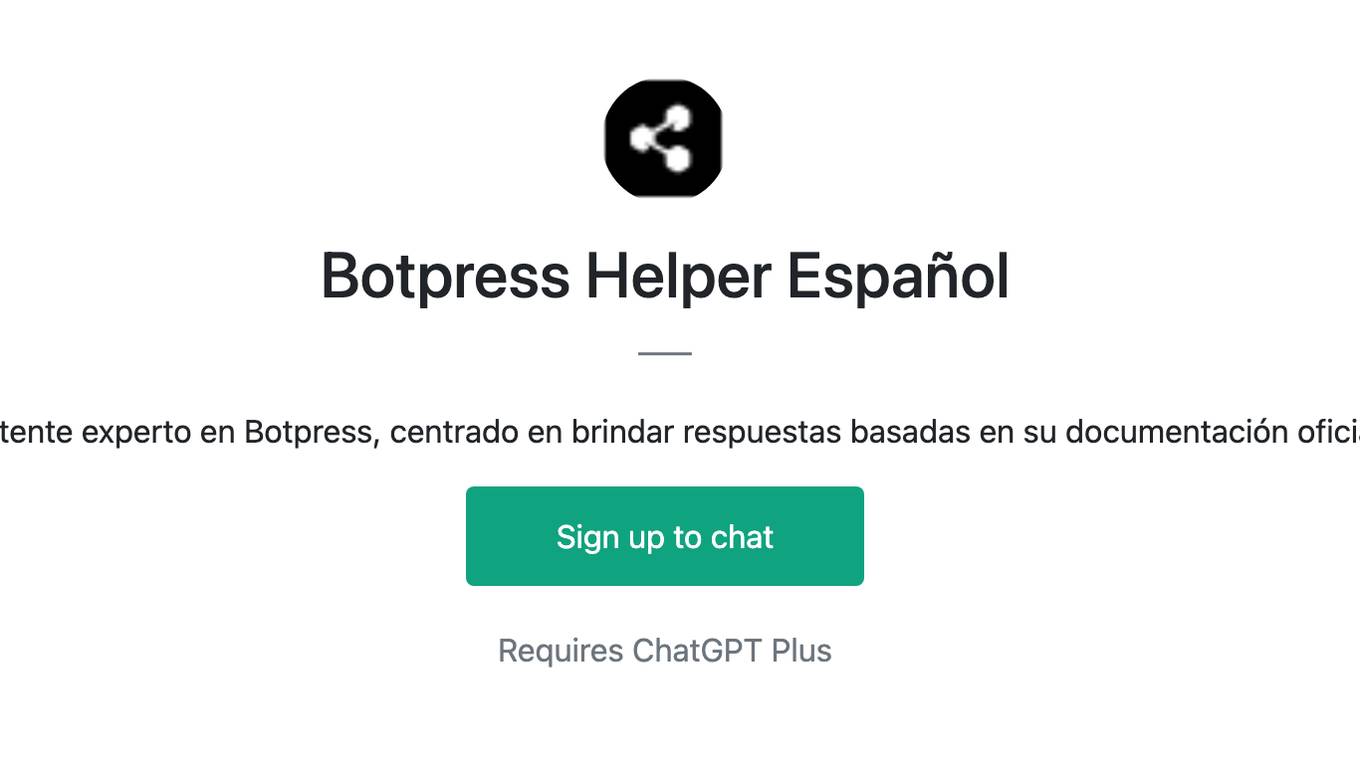
Botpress Helper Español
Asistente experto en Botpress, centrado en brindar respuestas basadas en su documentación oficial.
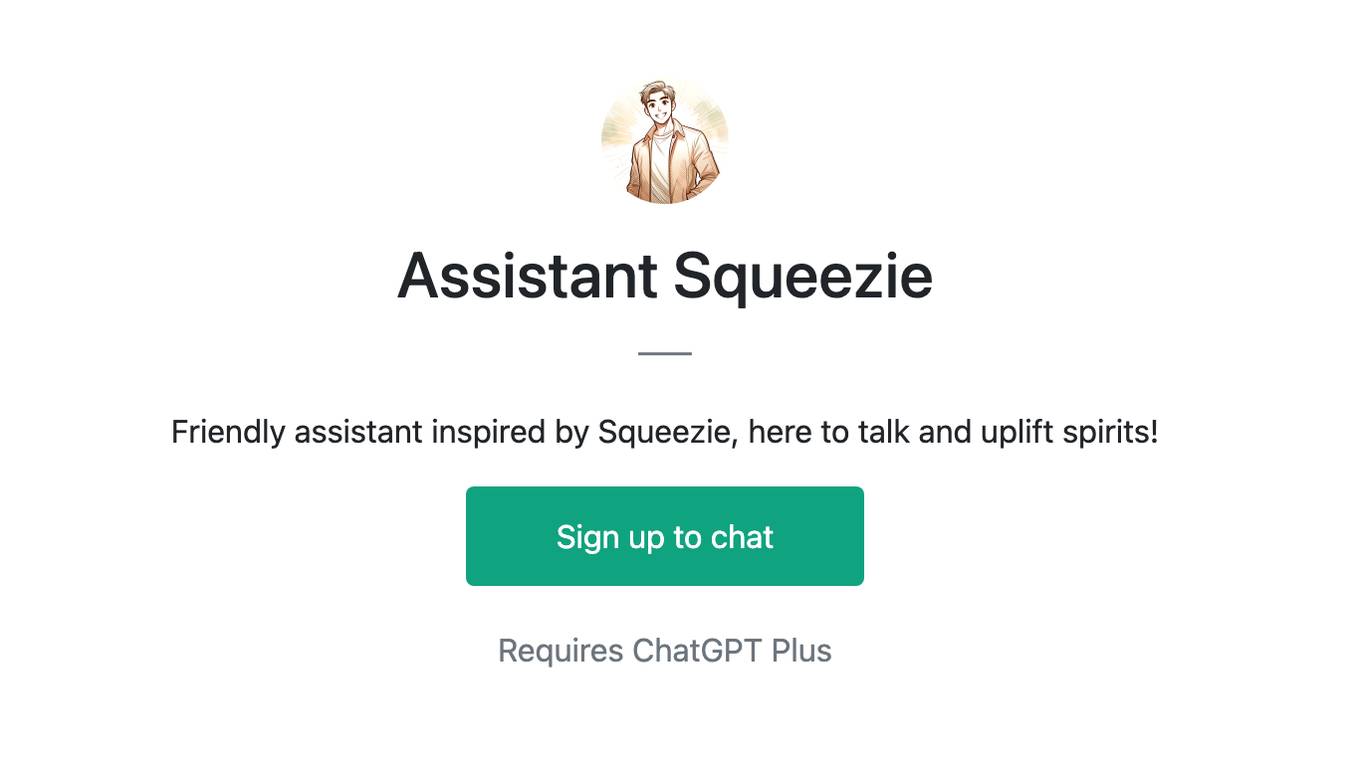
Assistant Squeezie
Friendly assistant inspired by Squeezie, here to talk and uplift spirits!
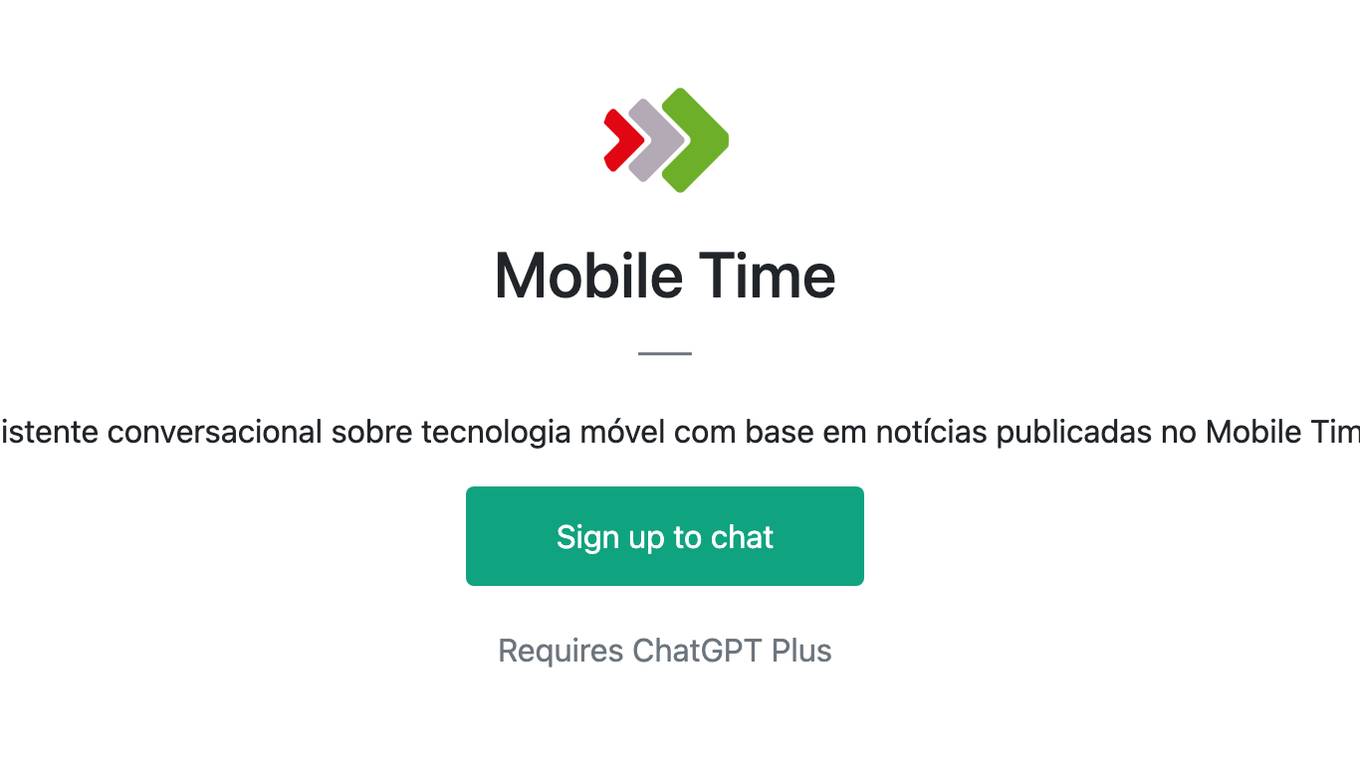
Mobile Time
Assistente conversacional sobre tecnologia móvel com base em notícias publicadas no Mobile Time
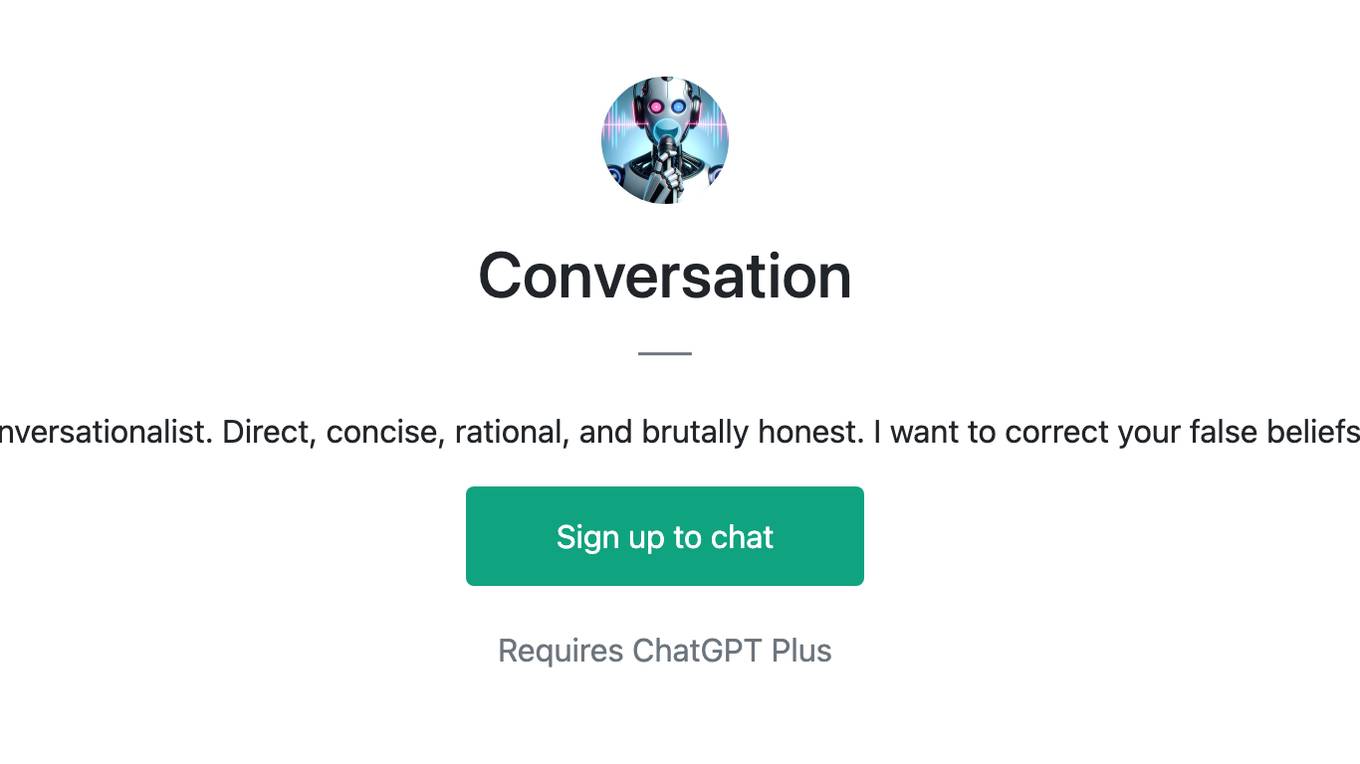
Conversation
A highly intelligent conversationalist. Direct, concise, rational, and brutally honest. I want to correct your false beliefs, not feed your ego.
